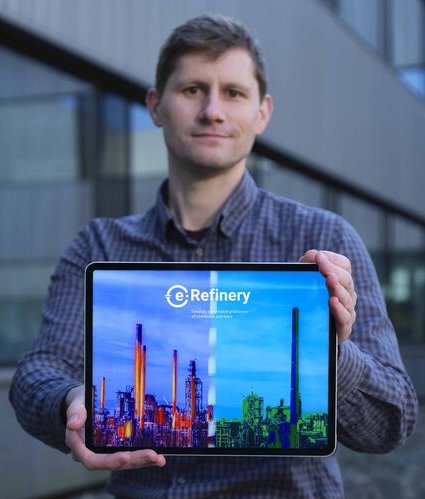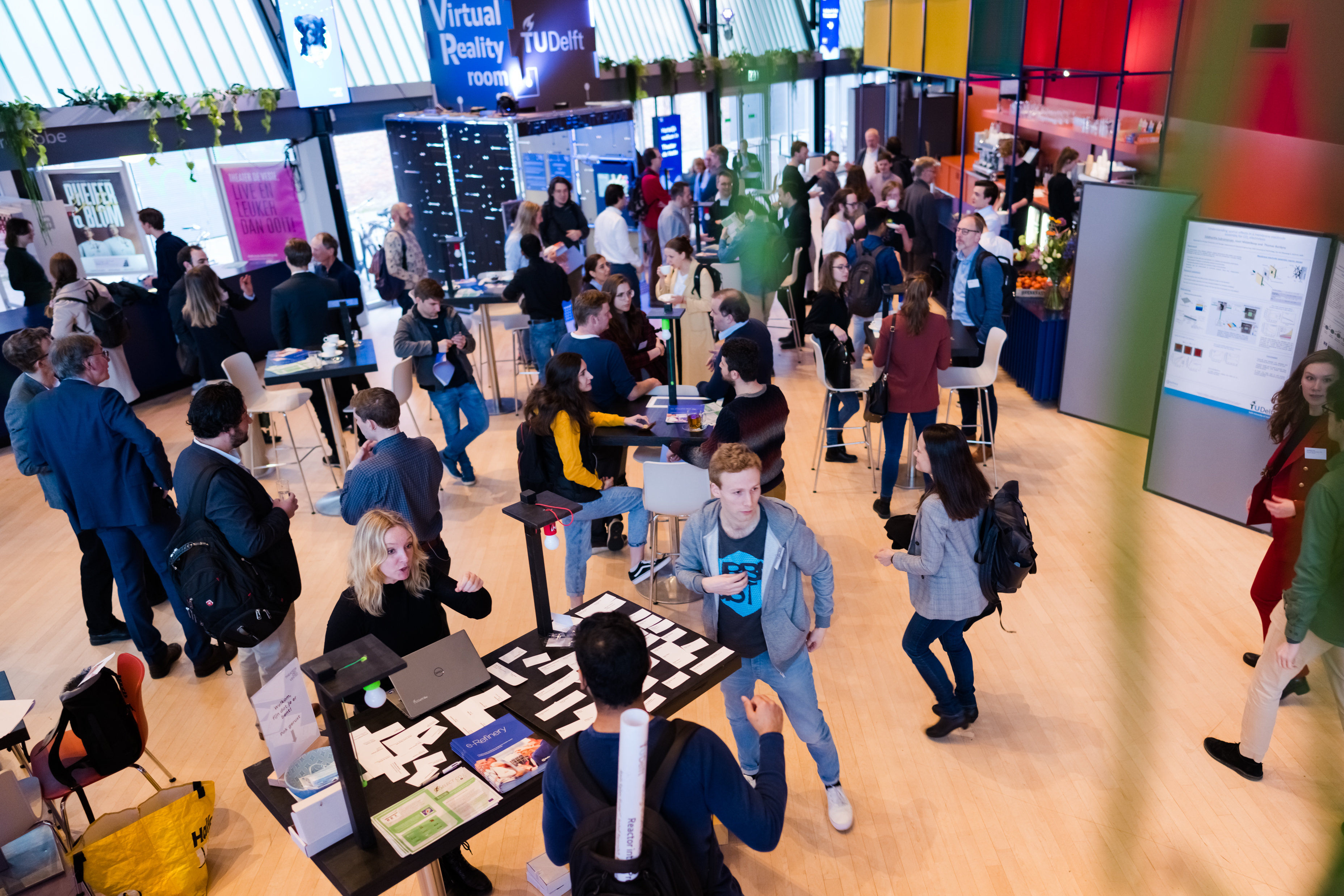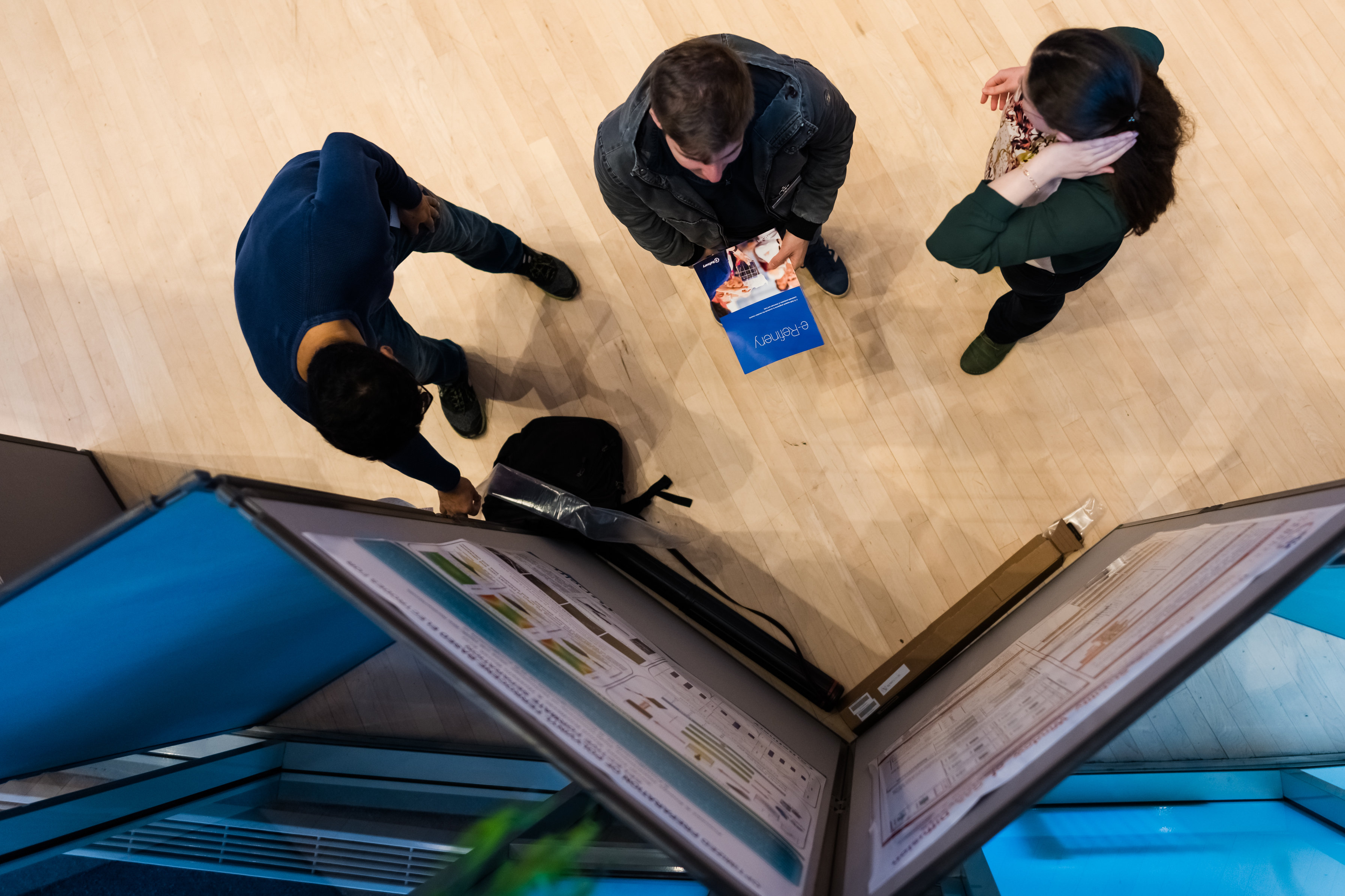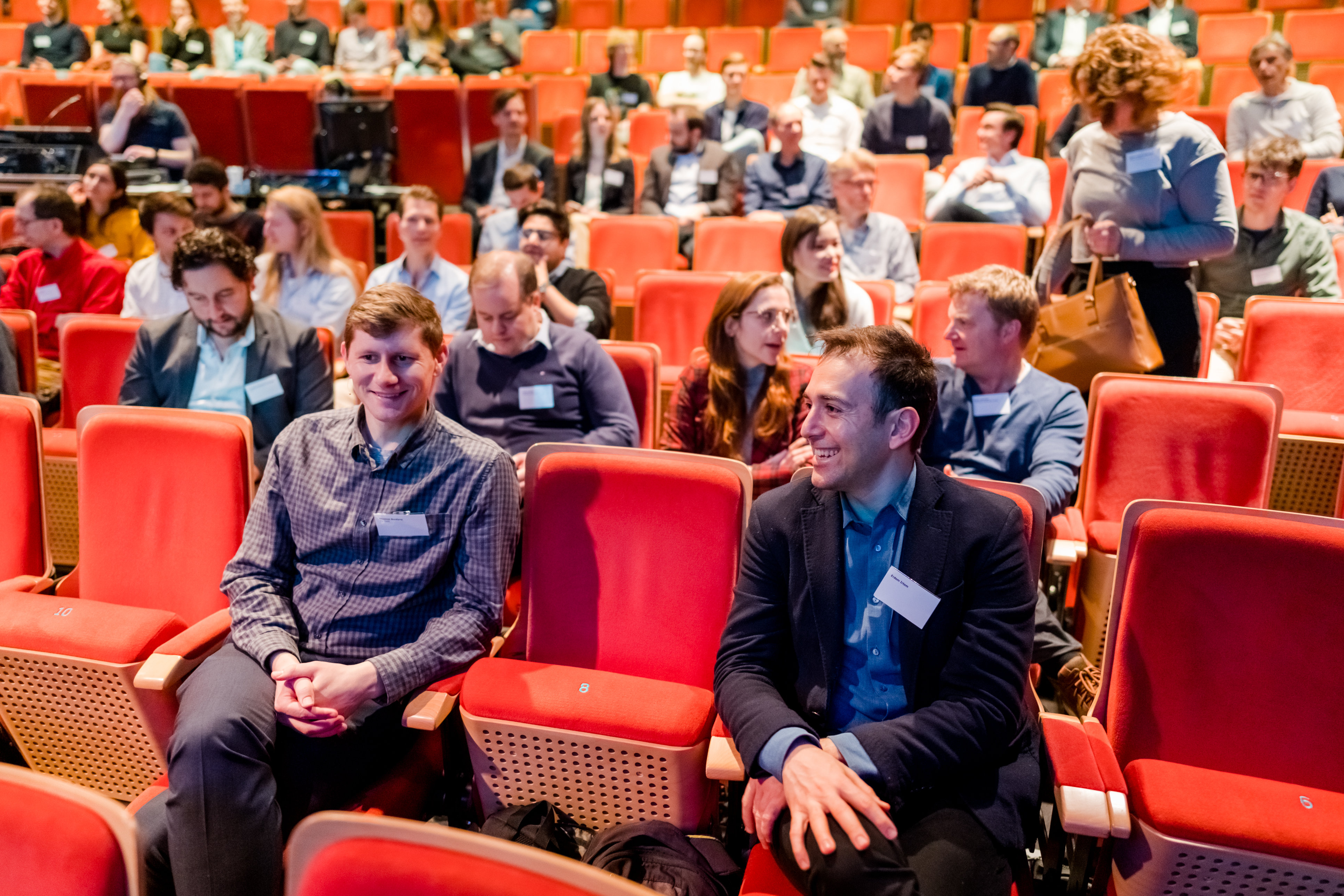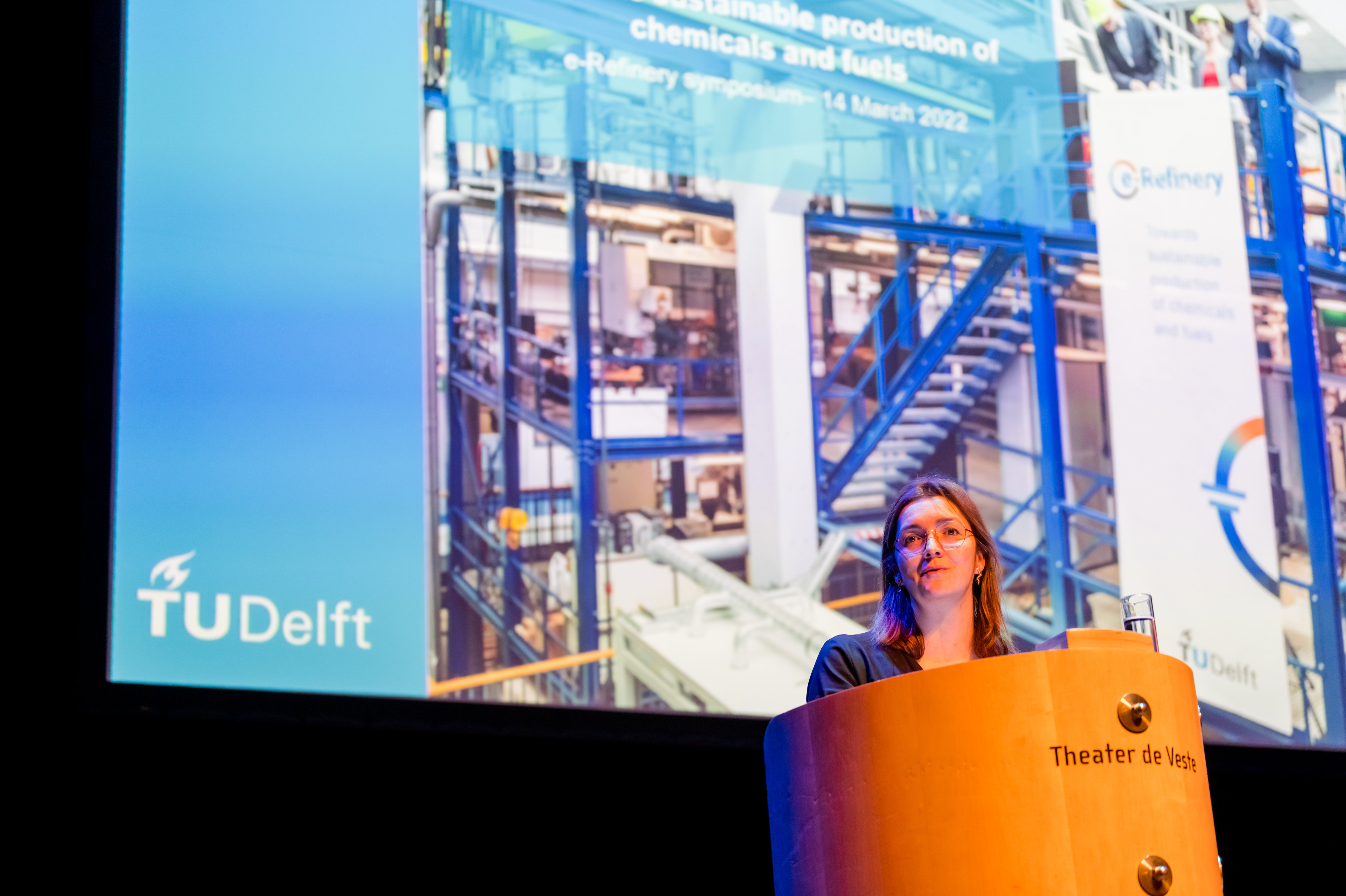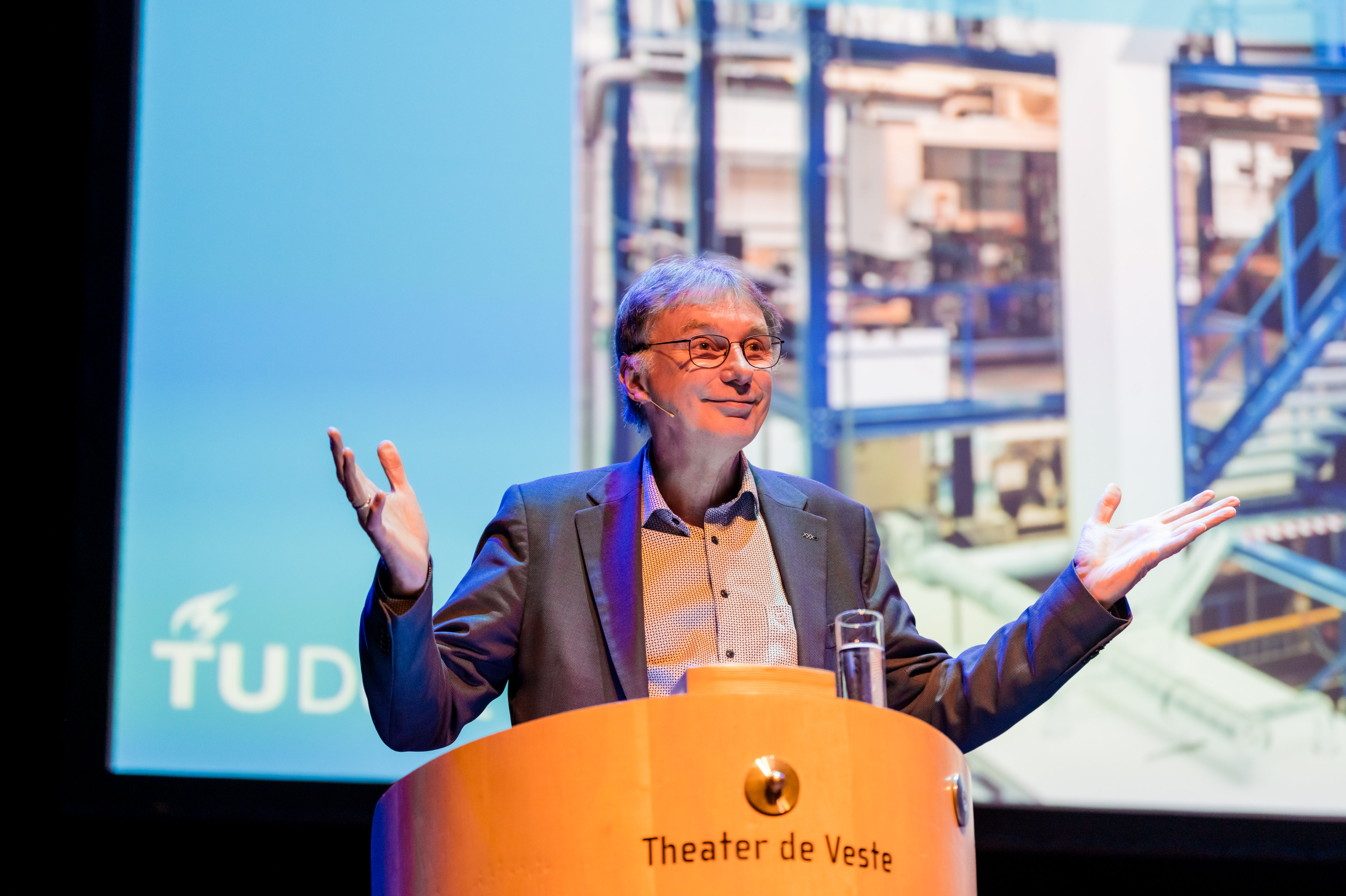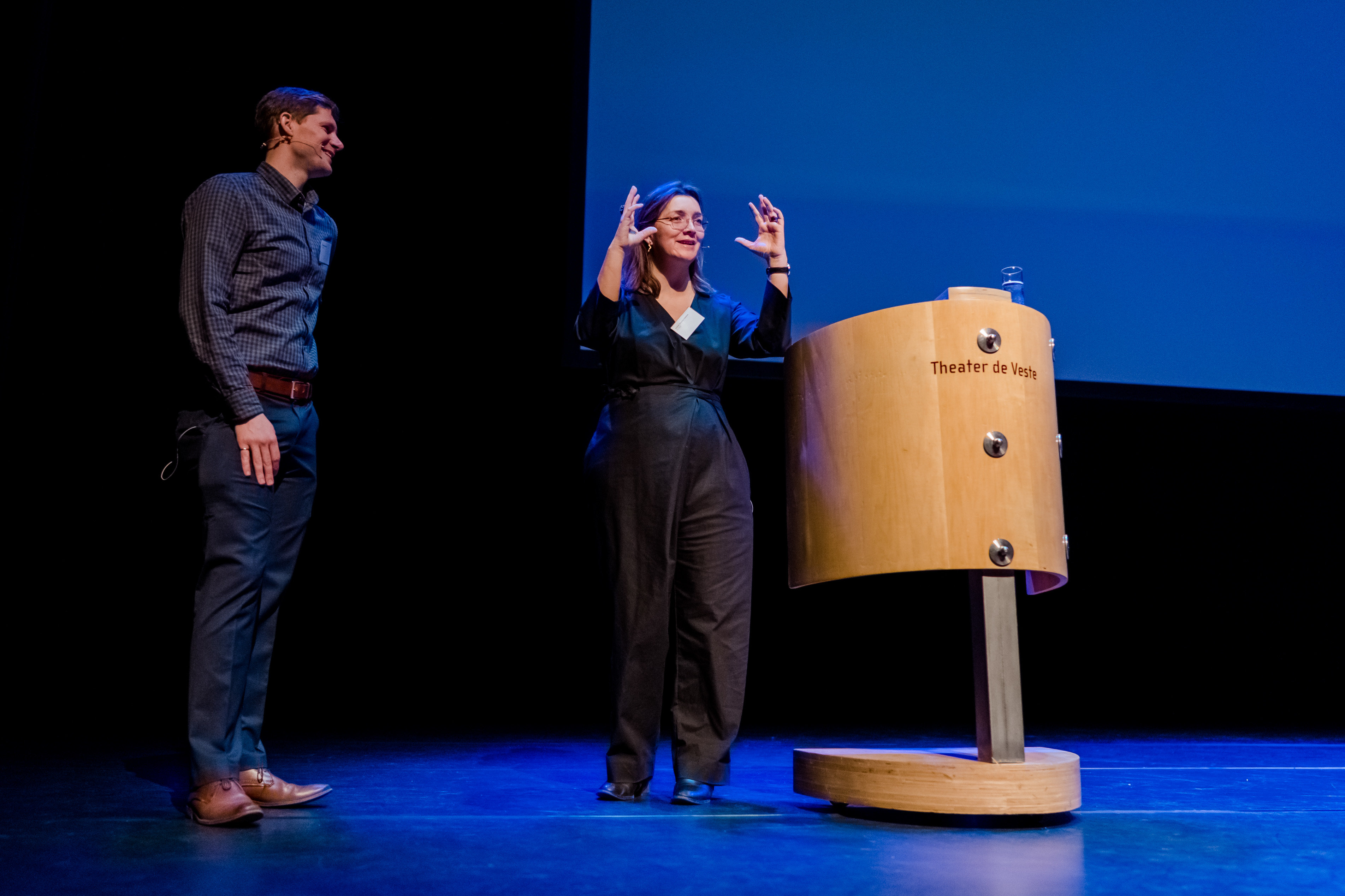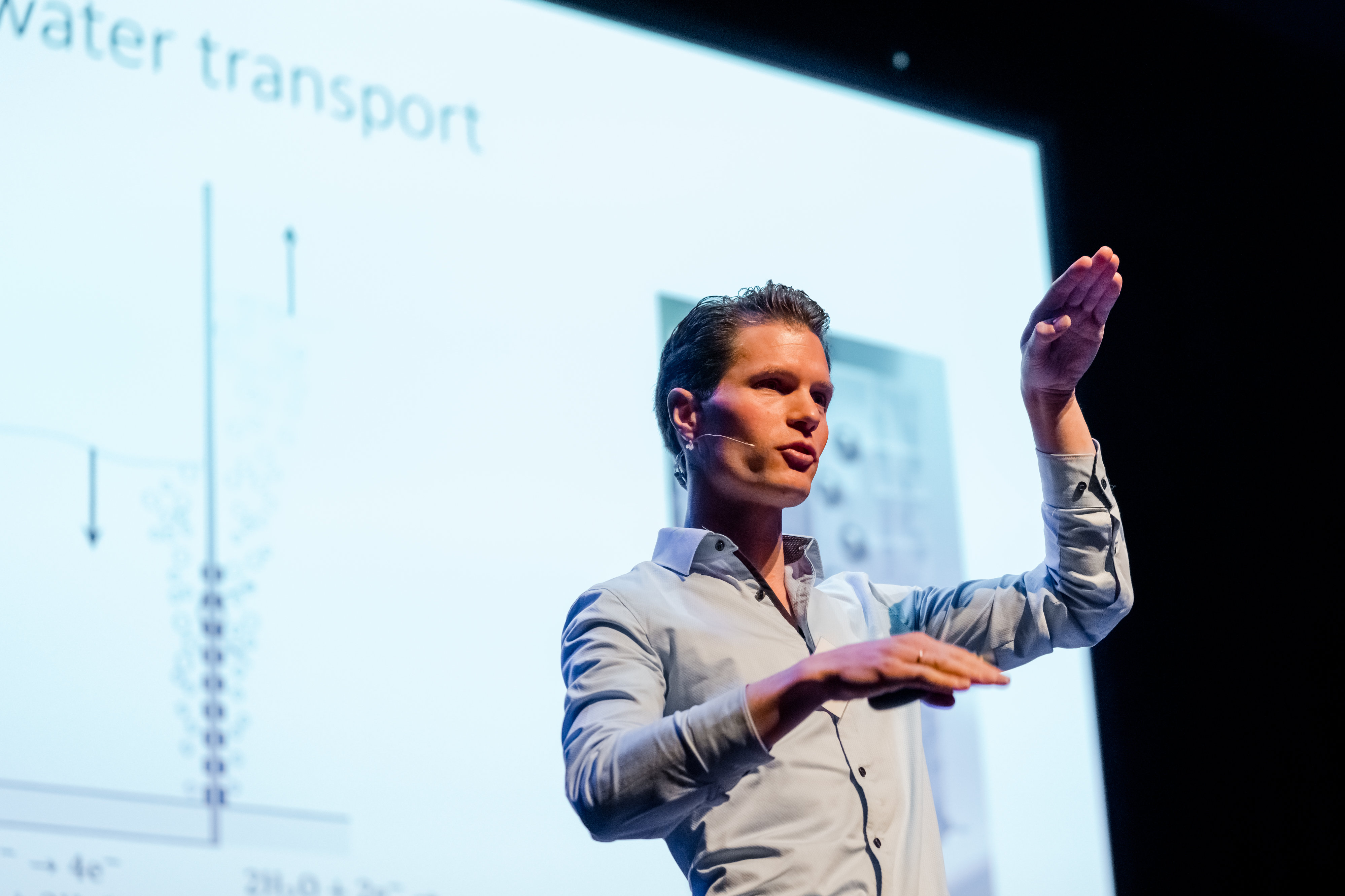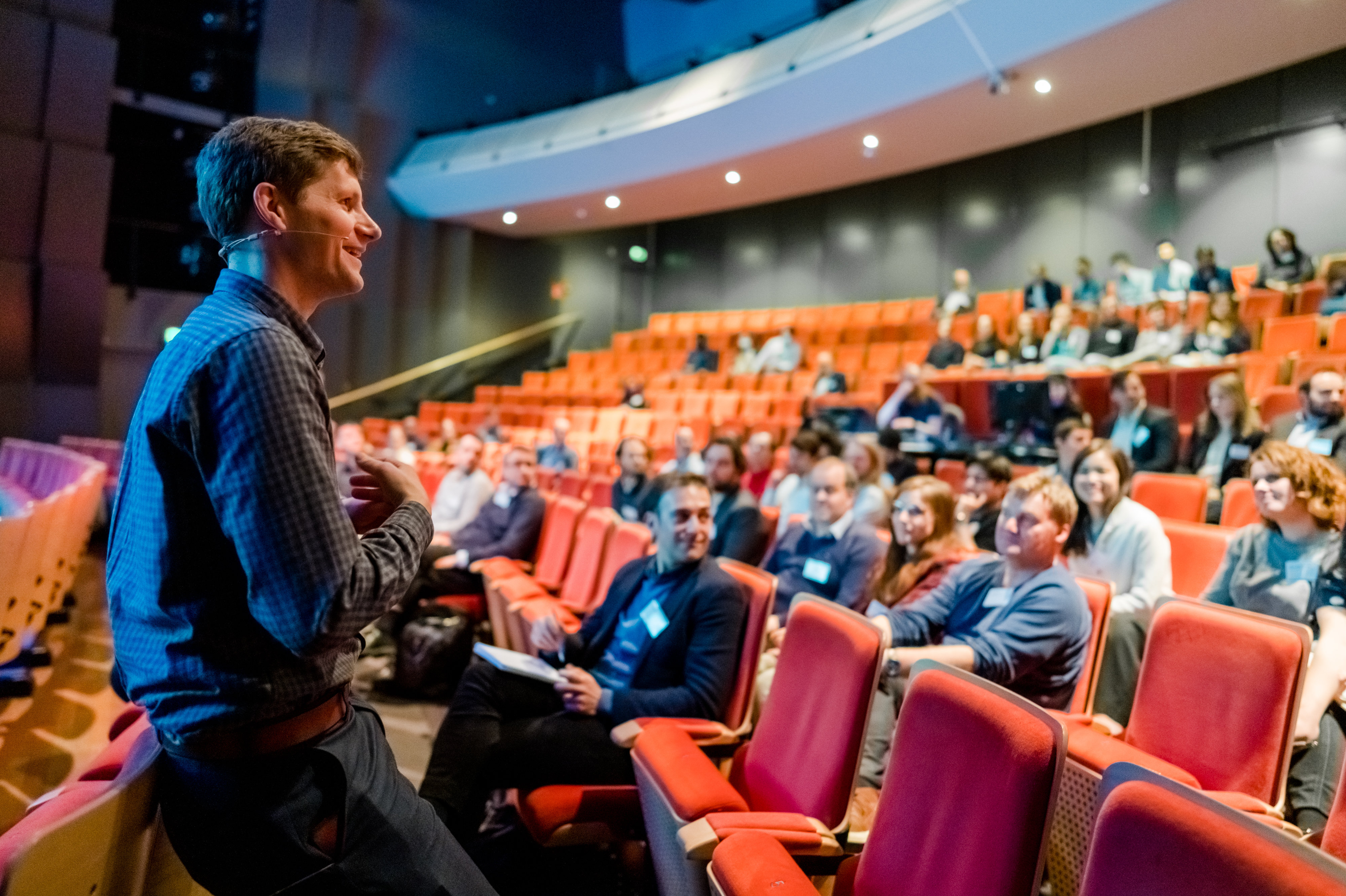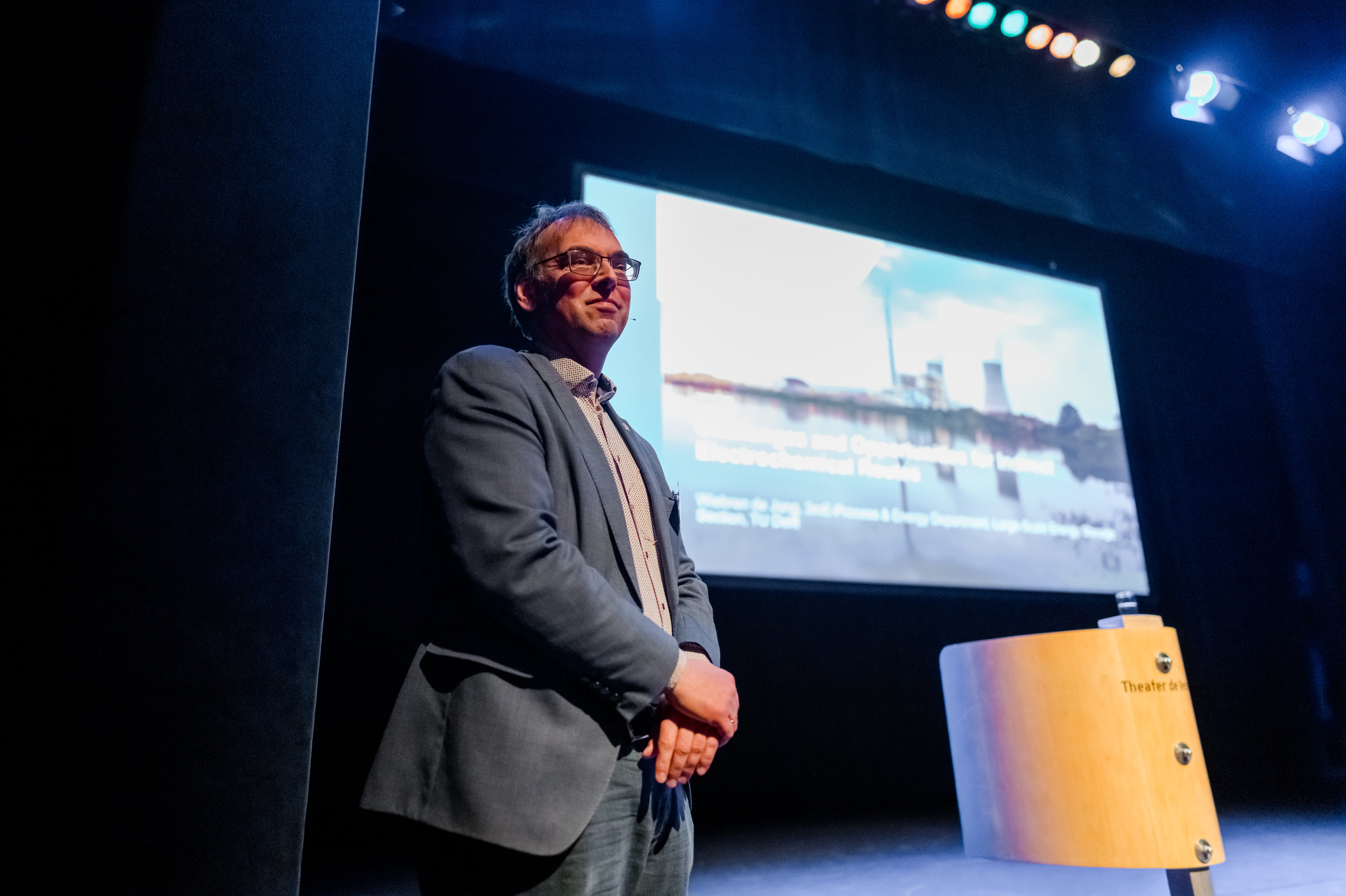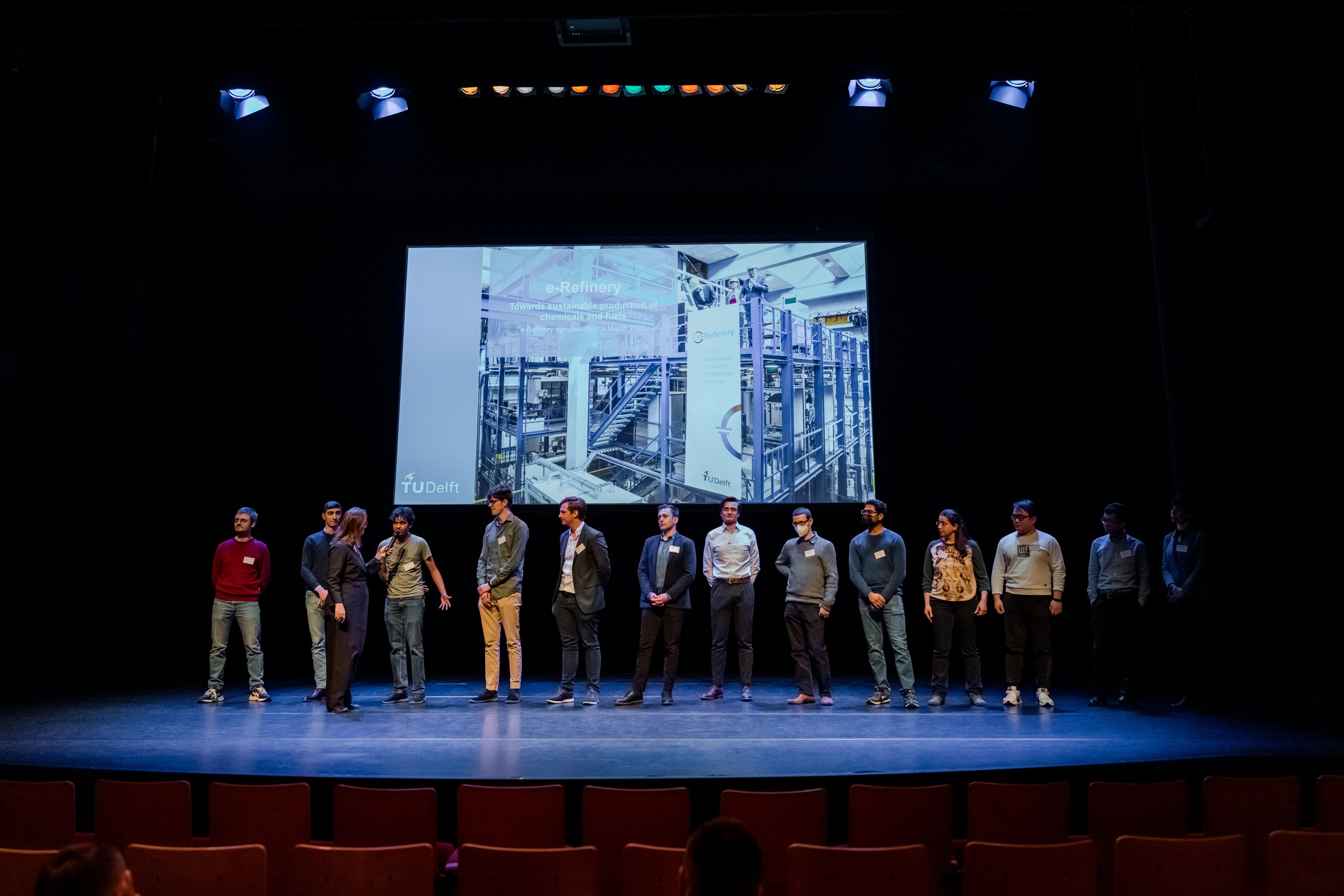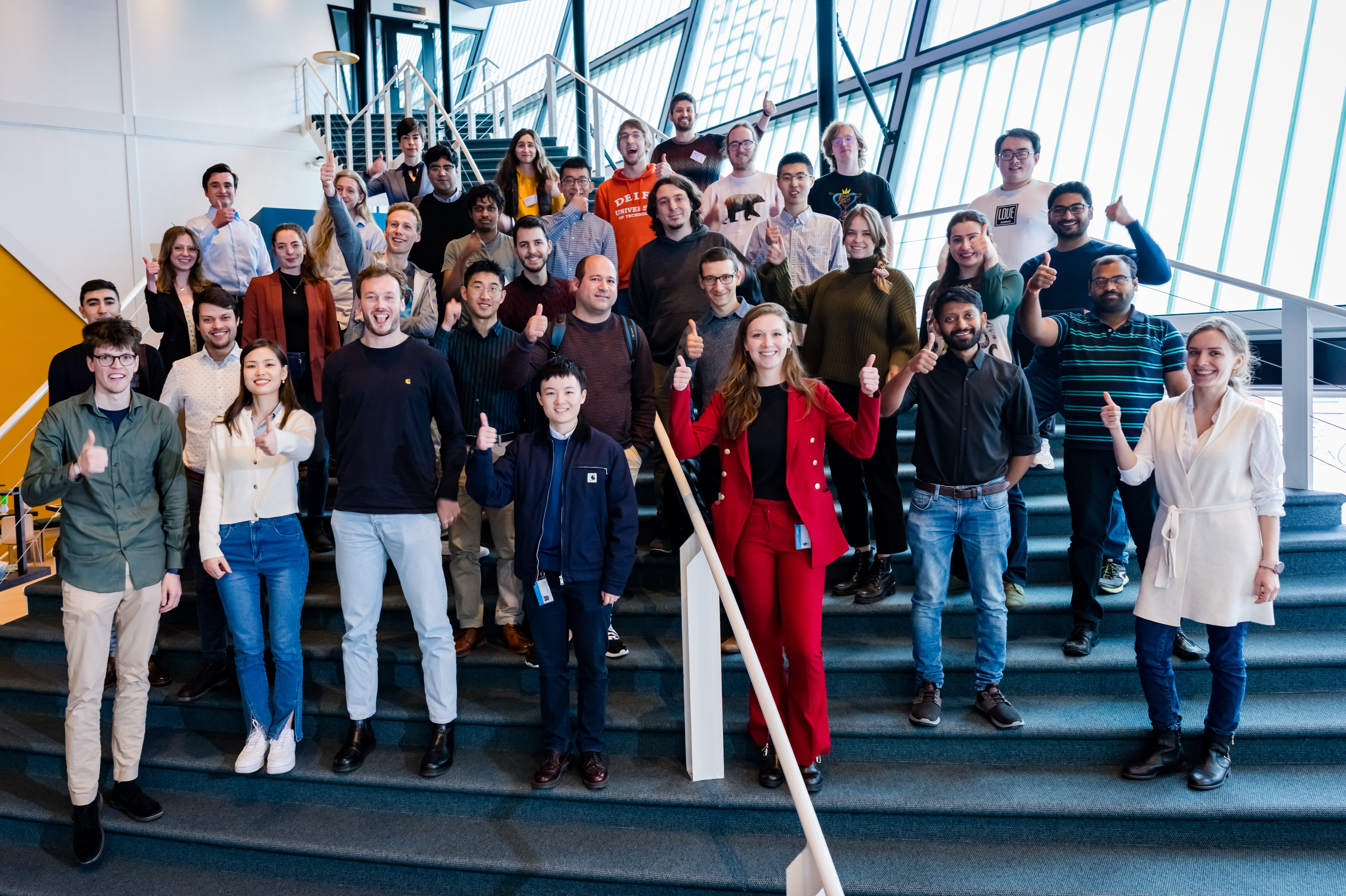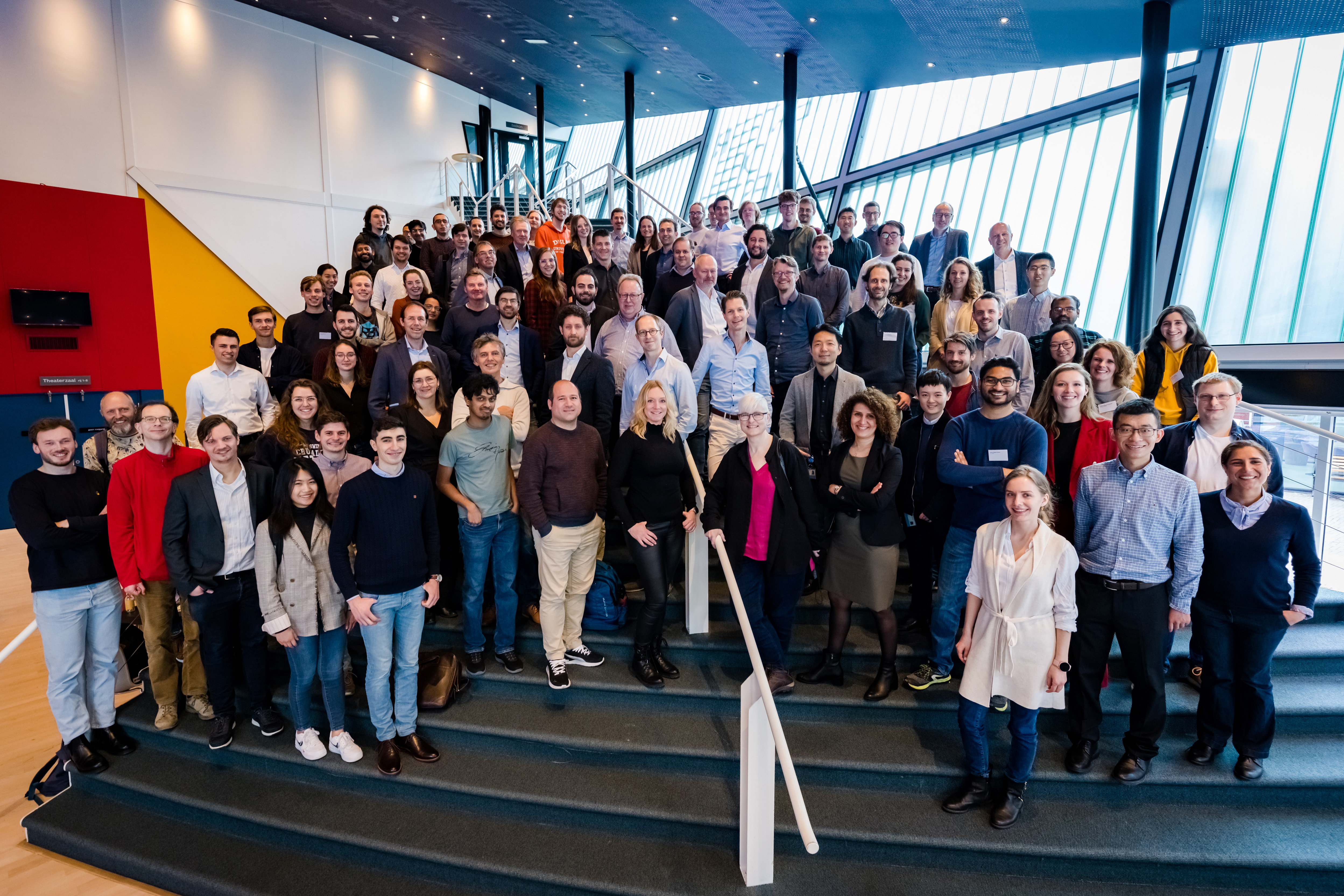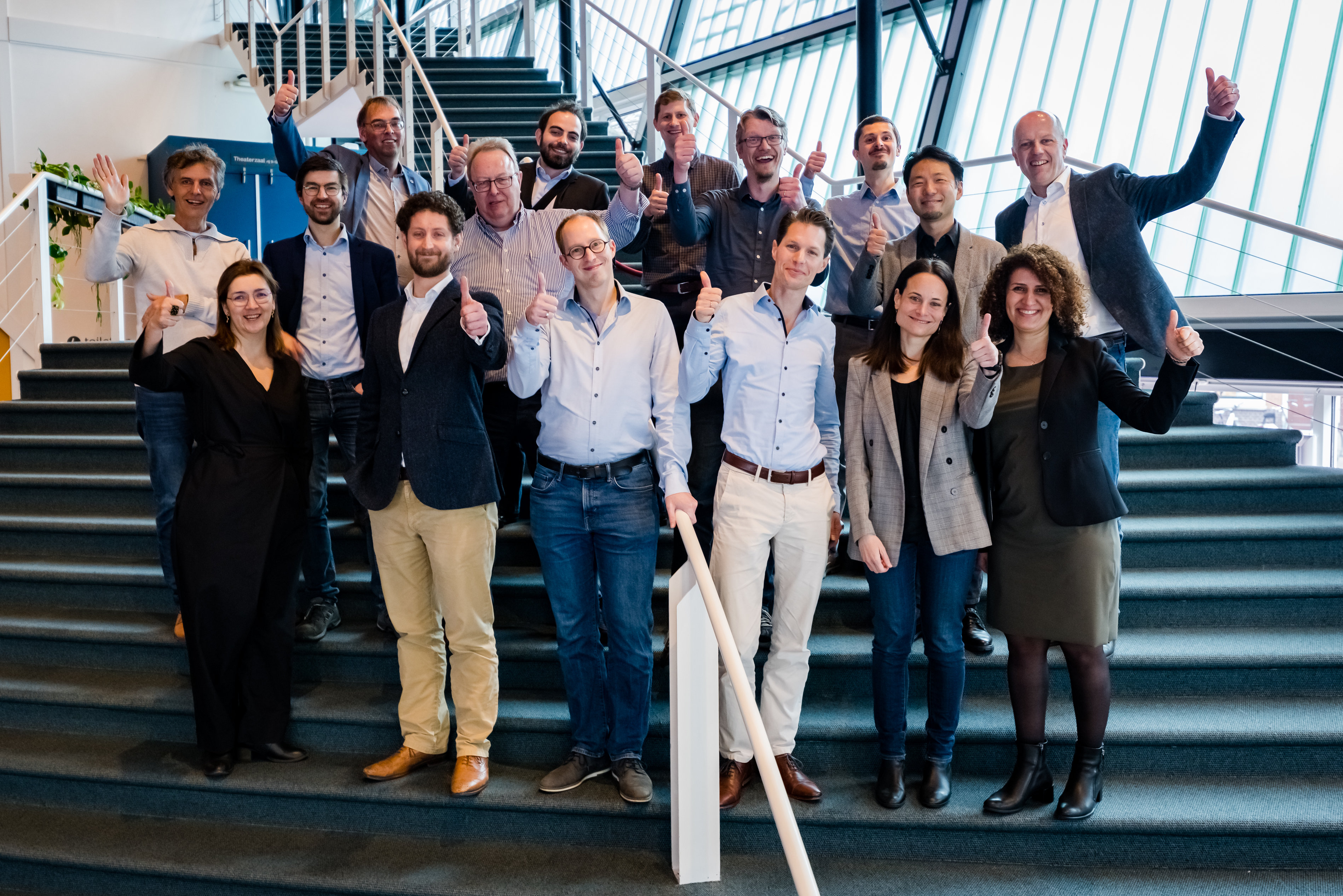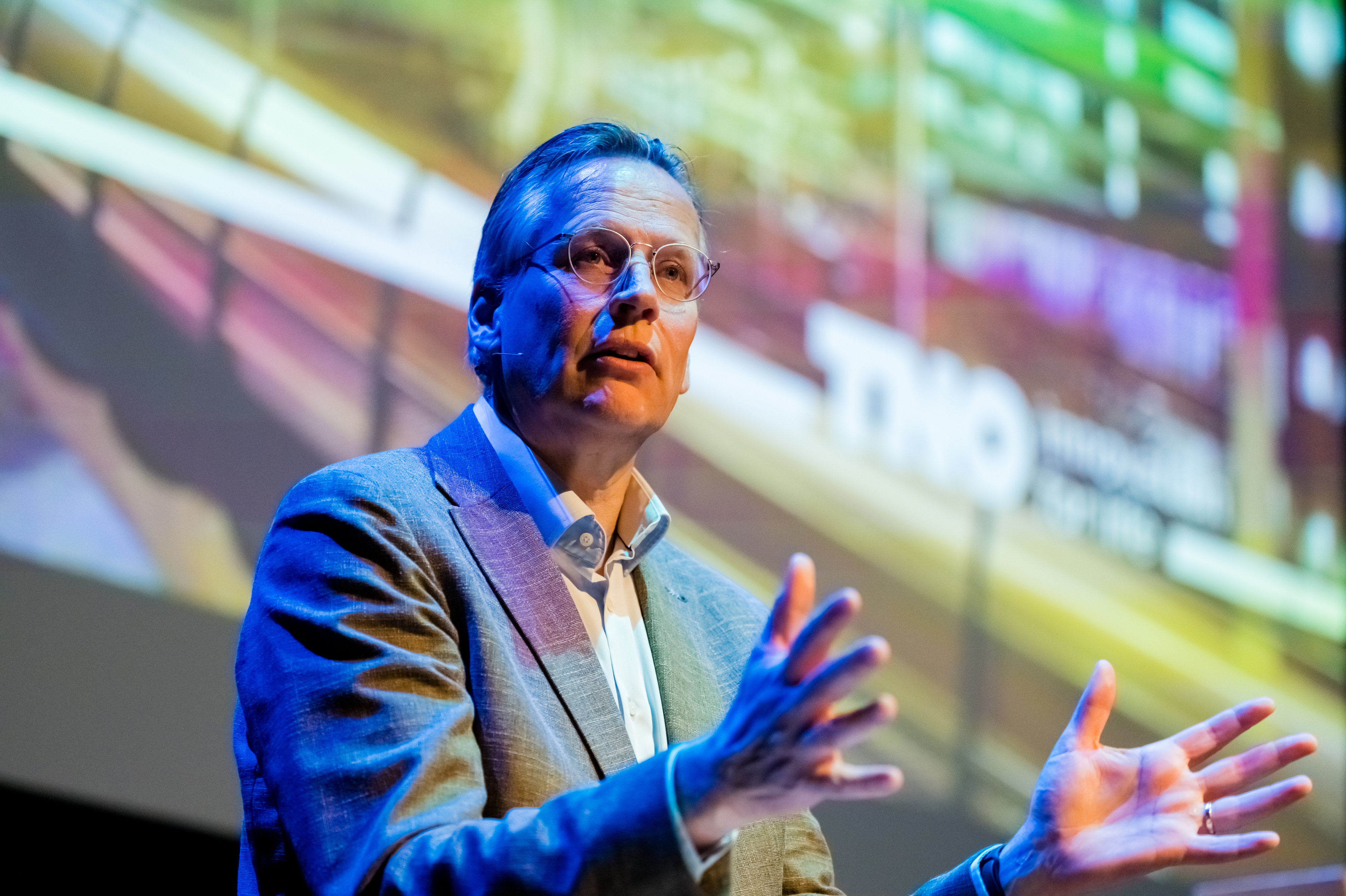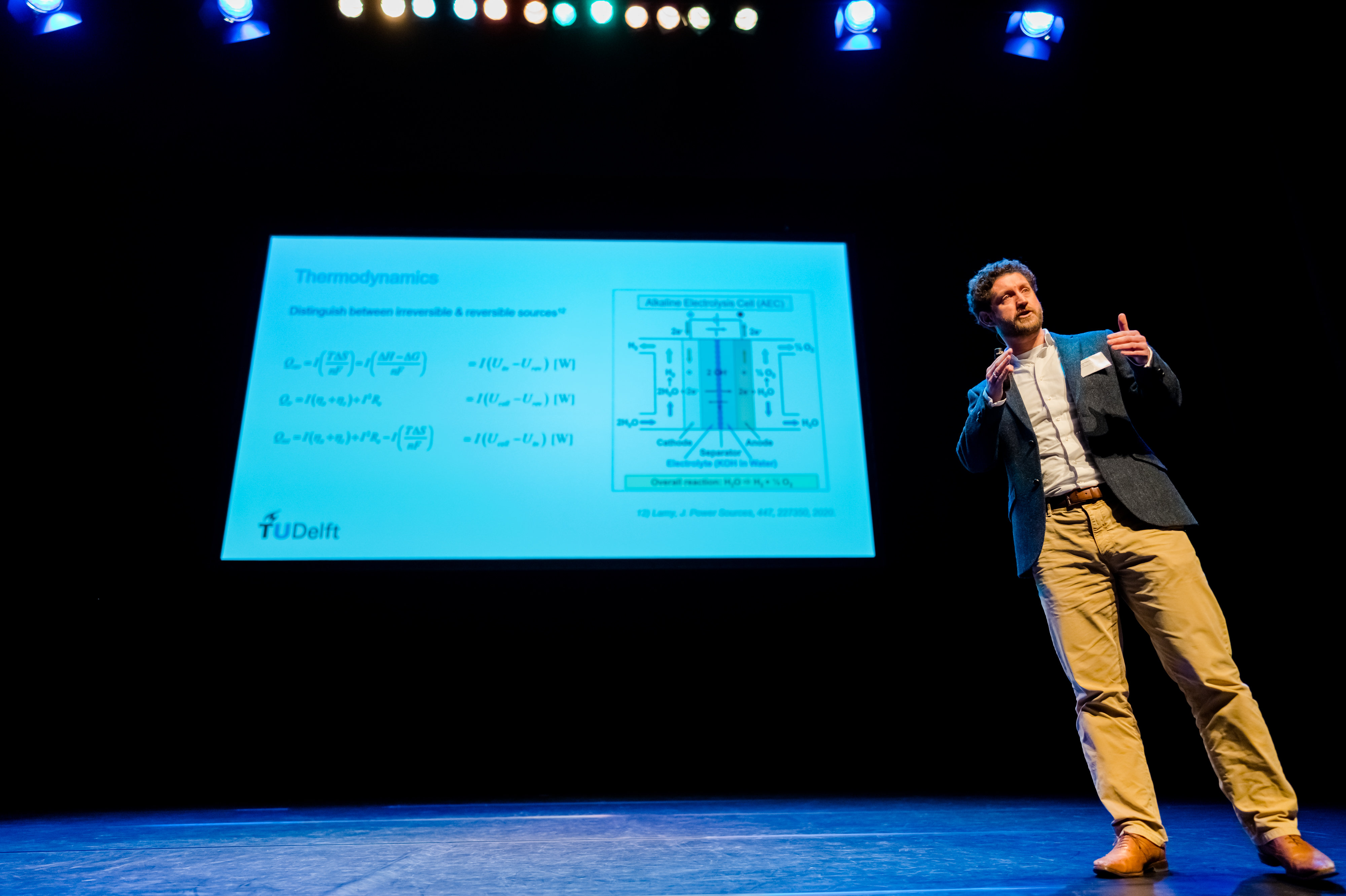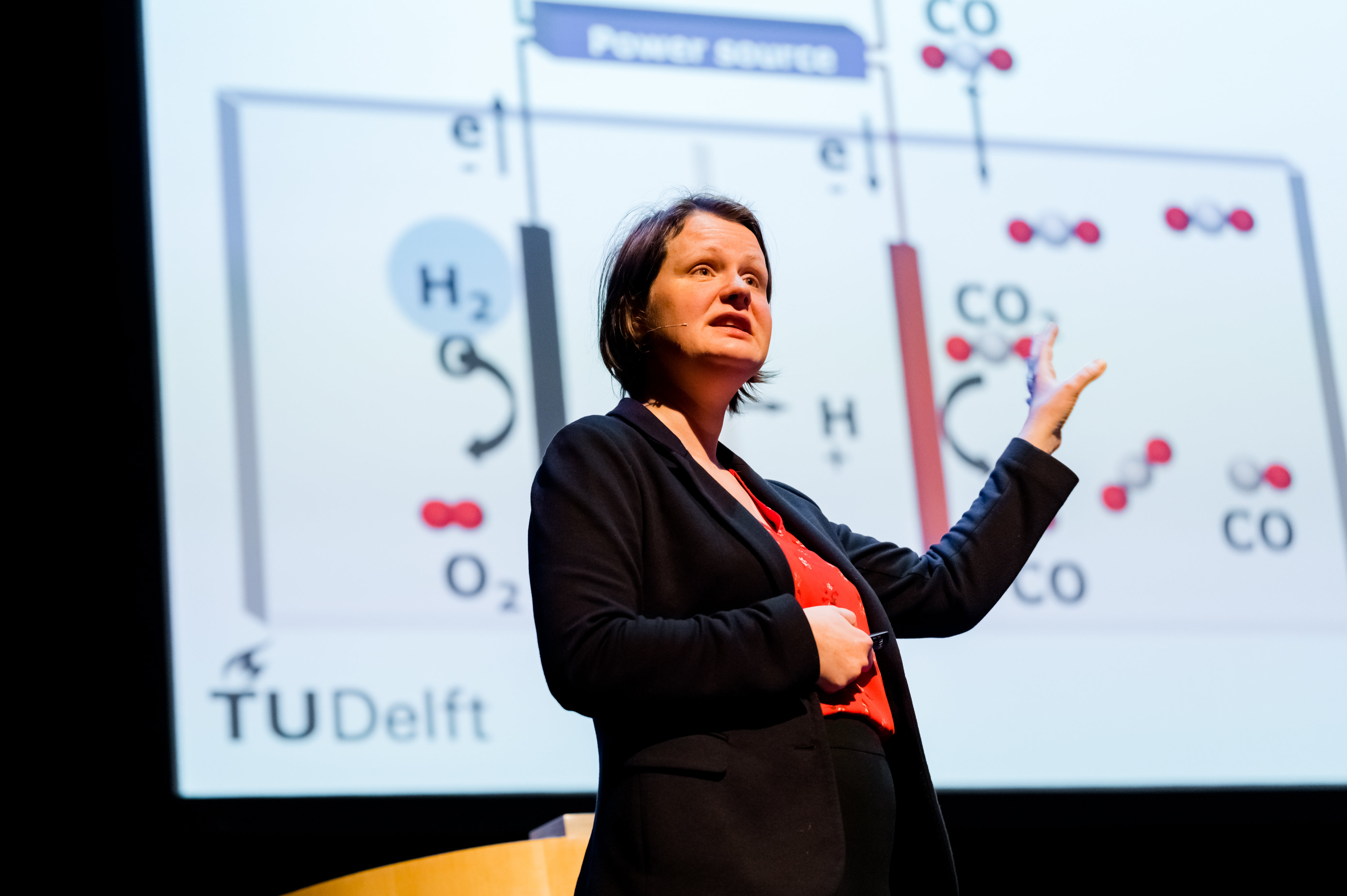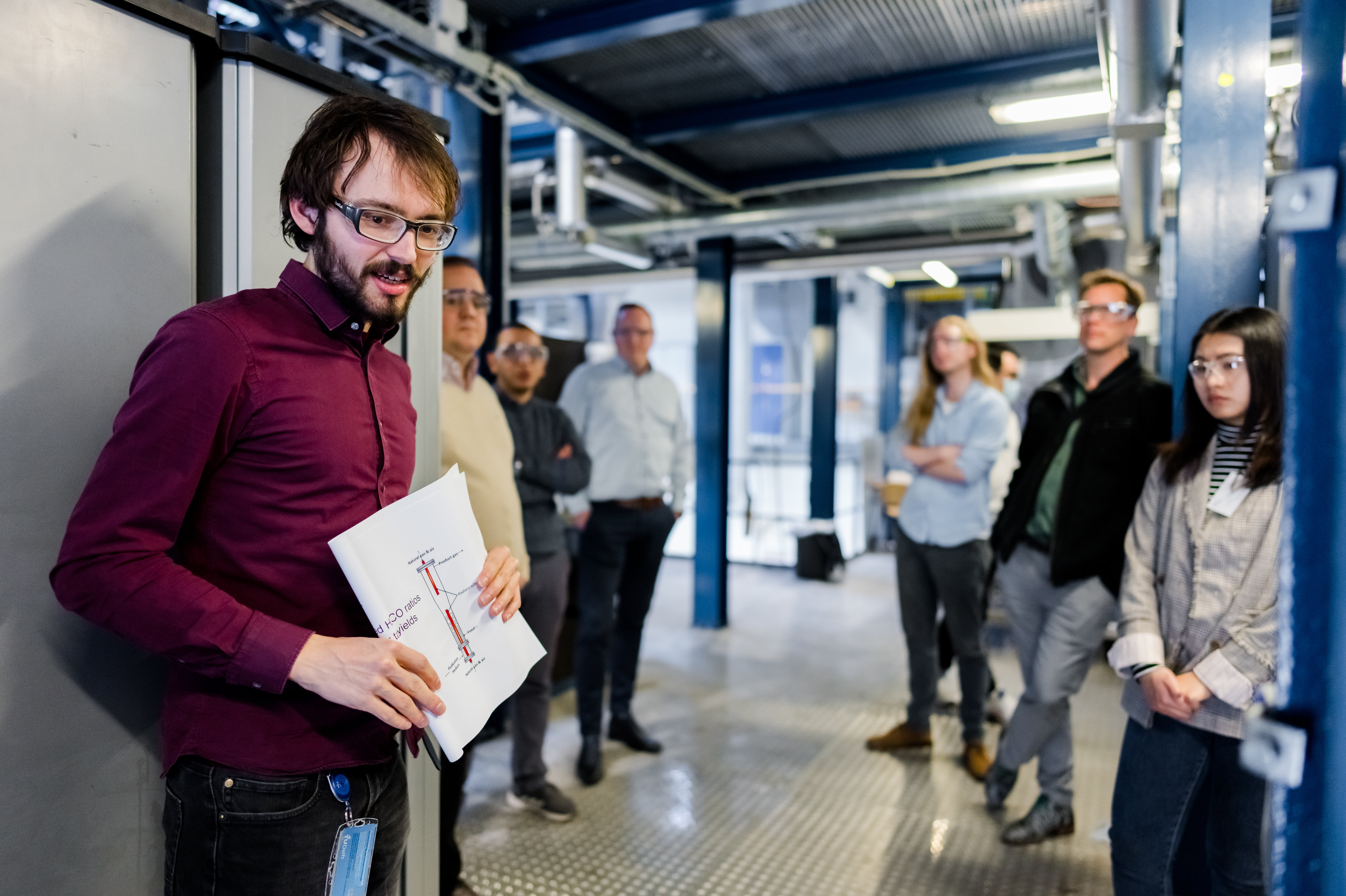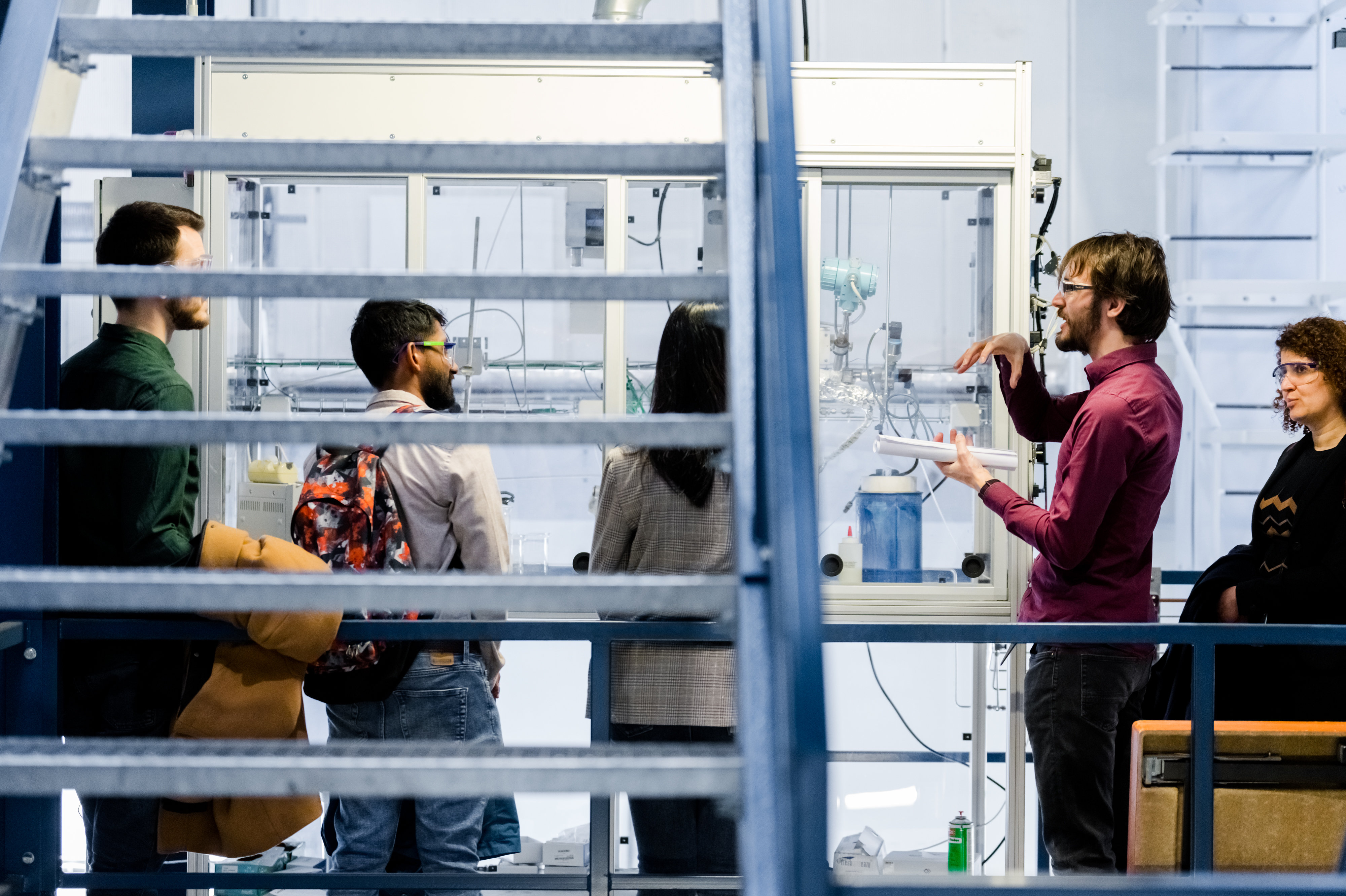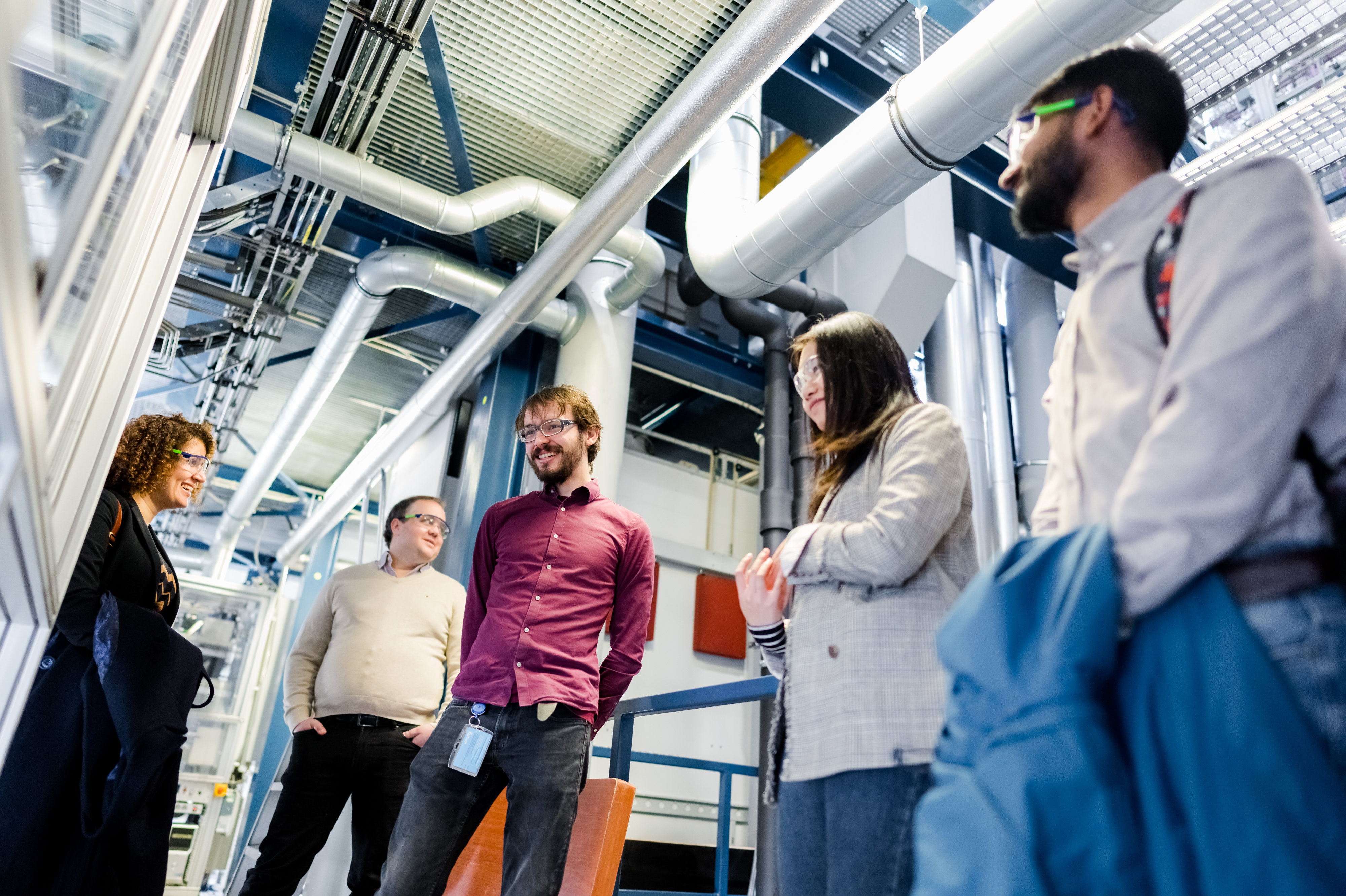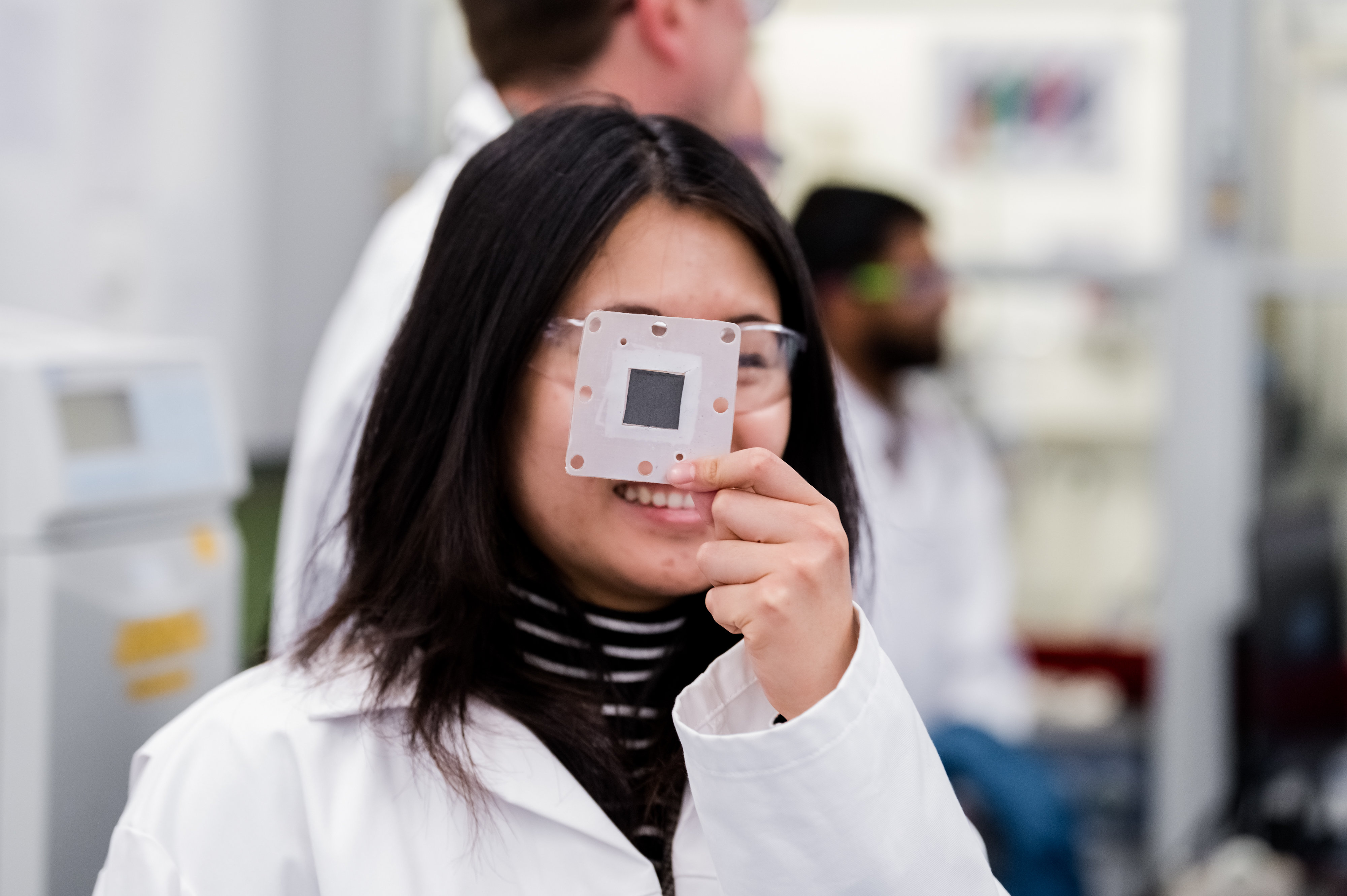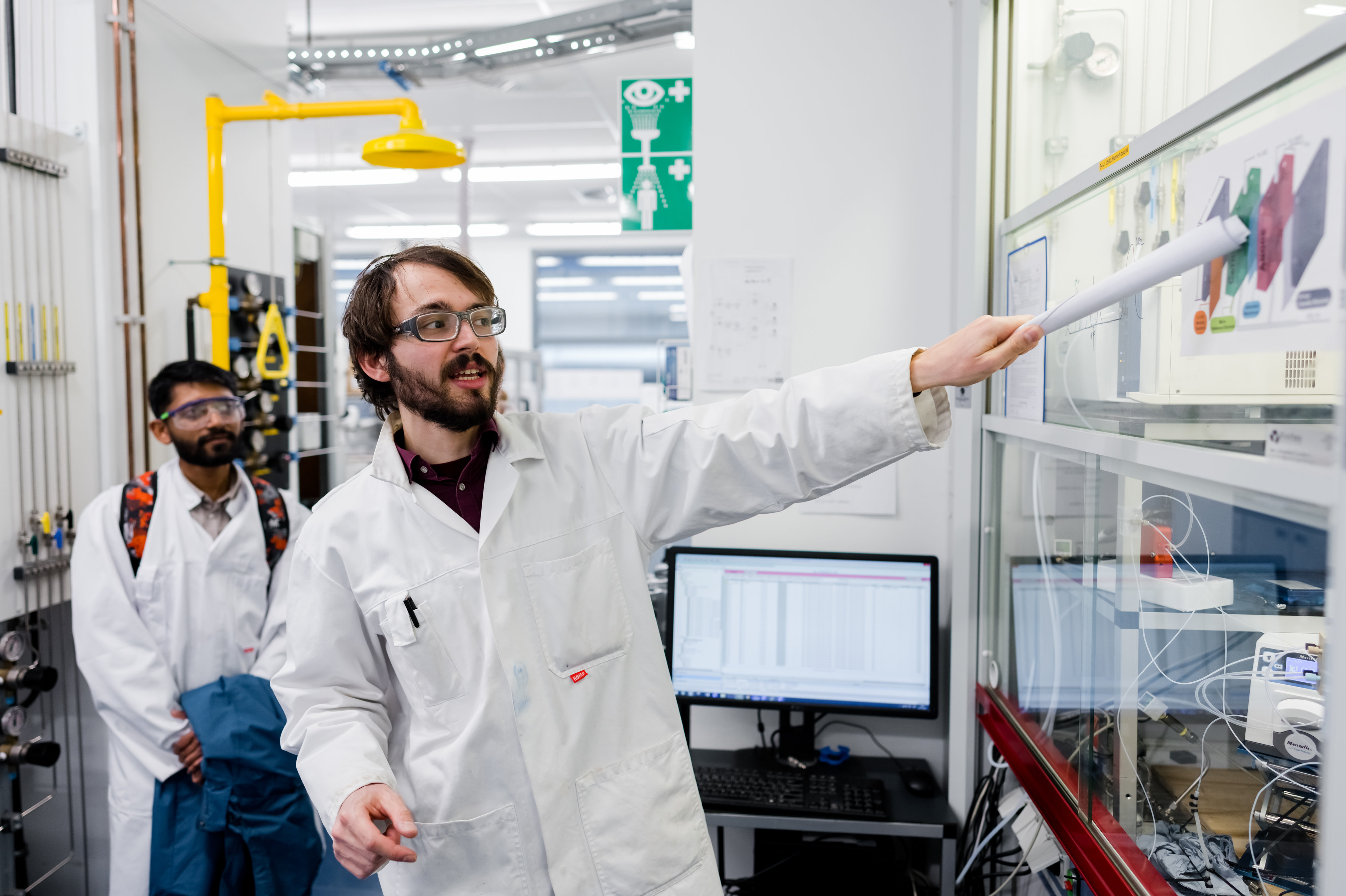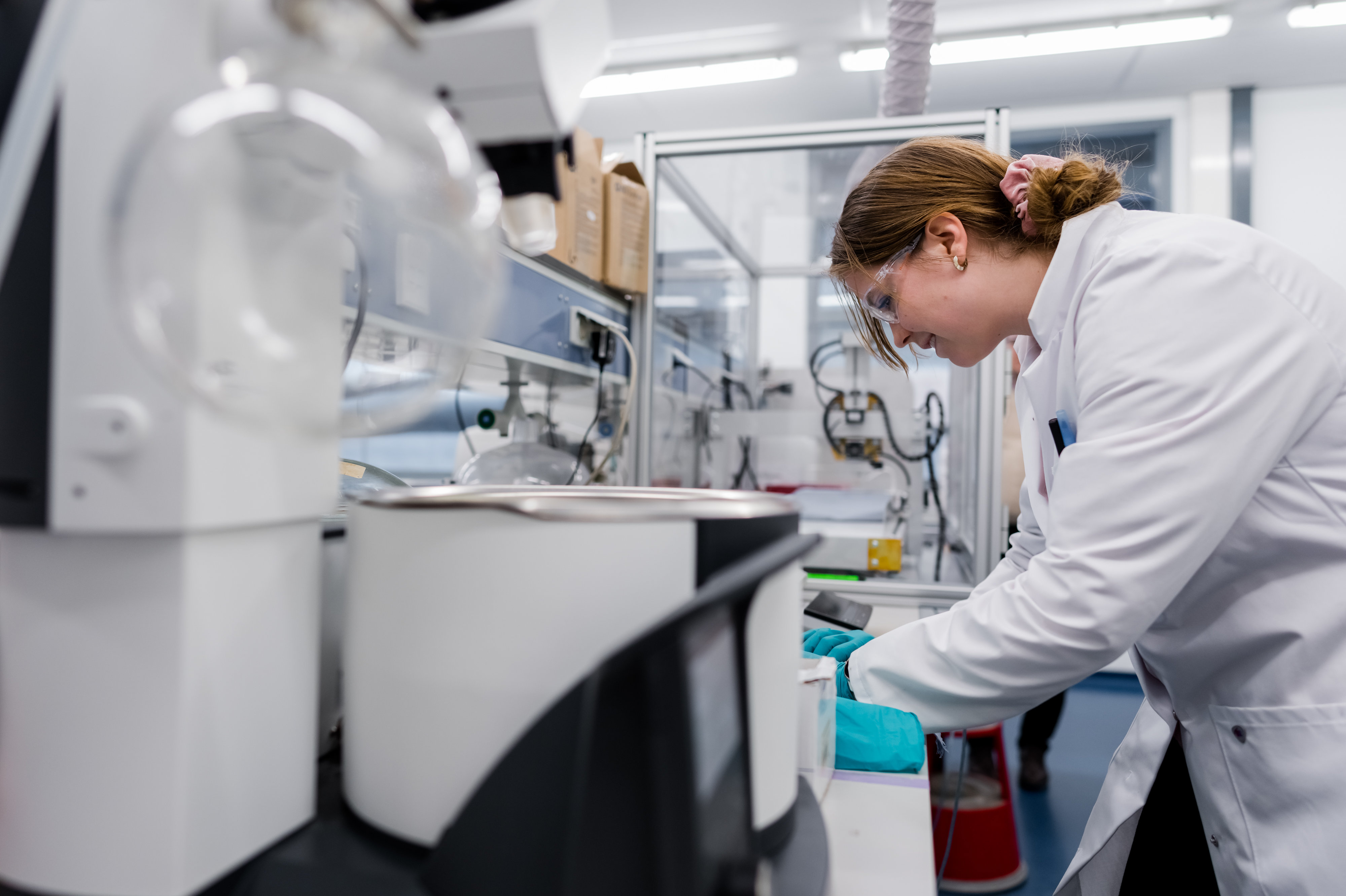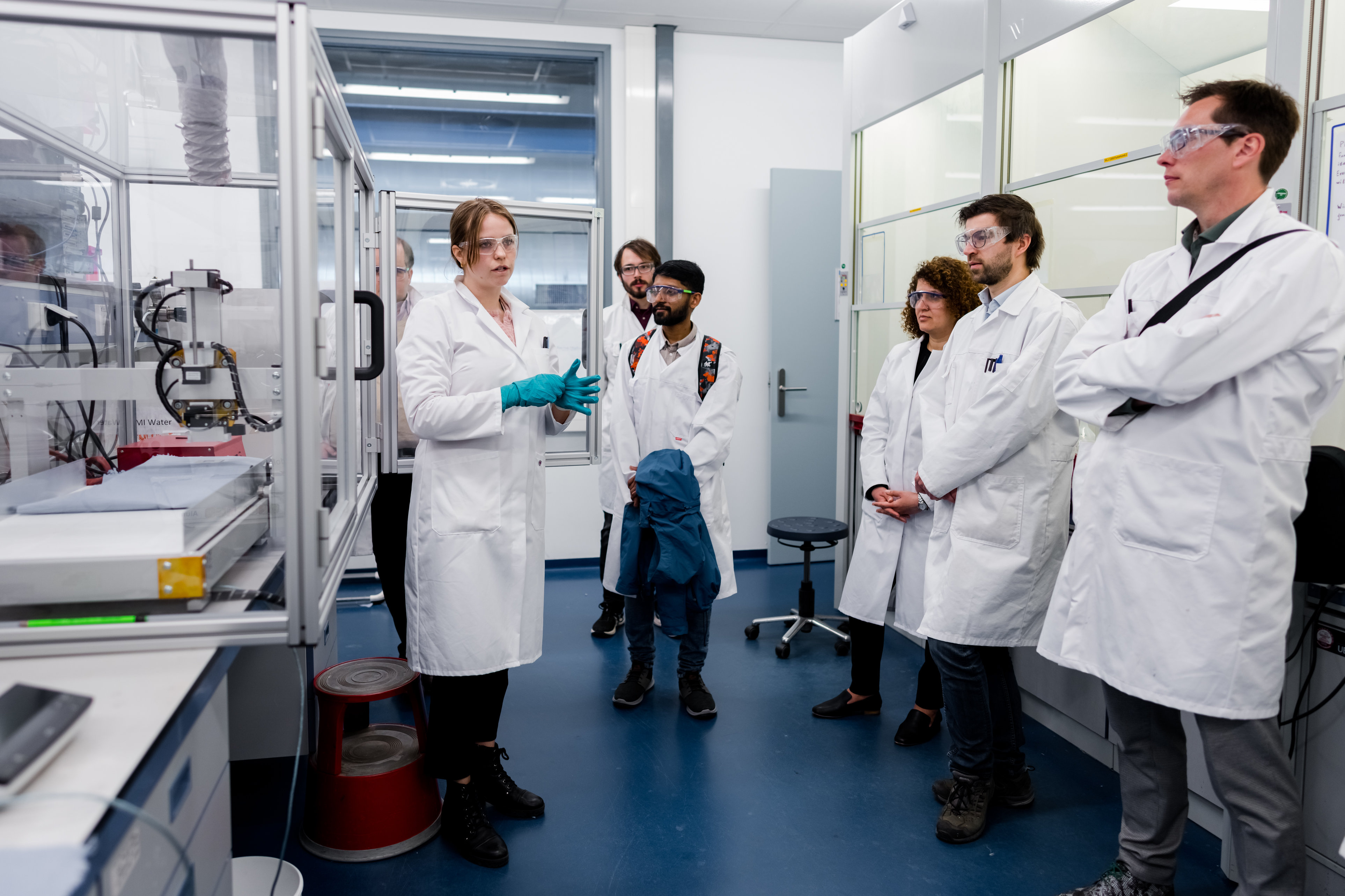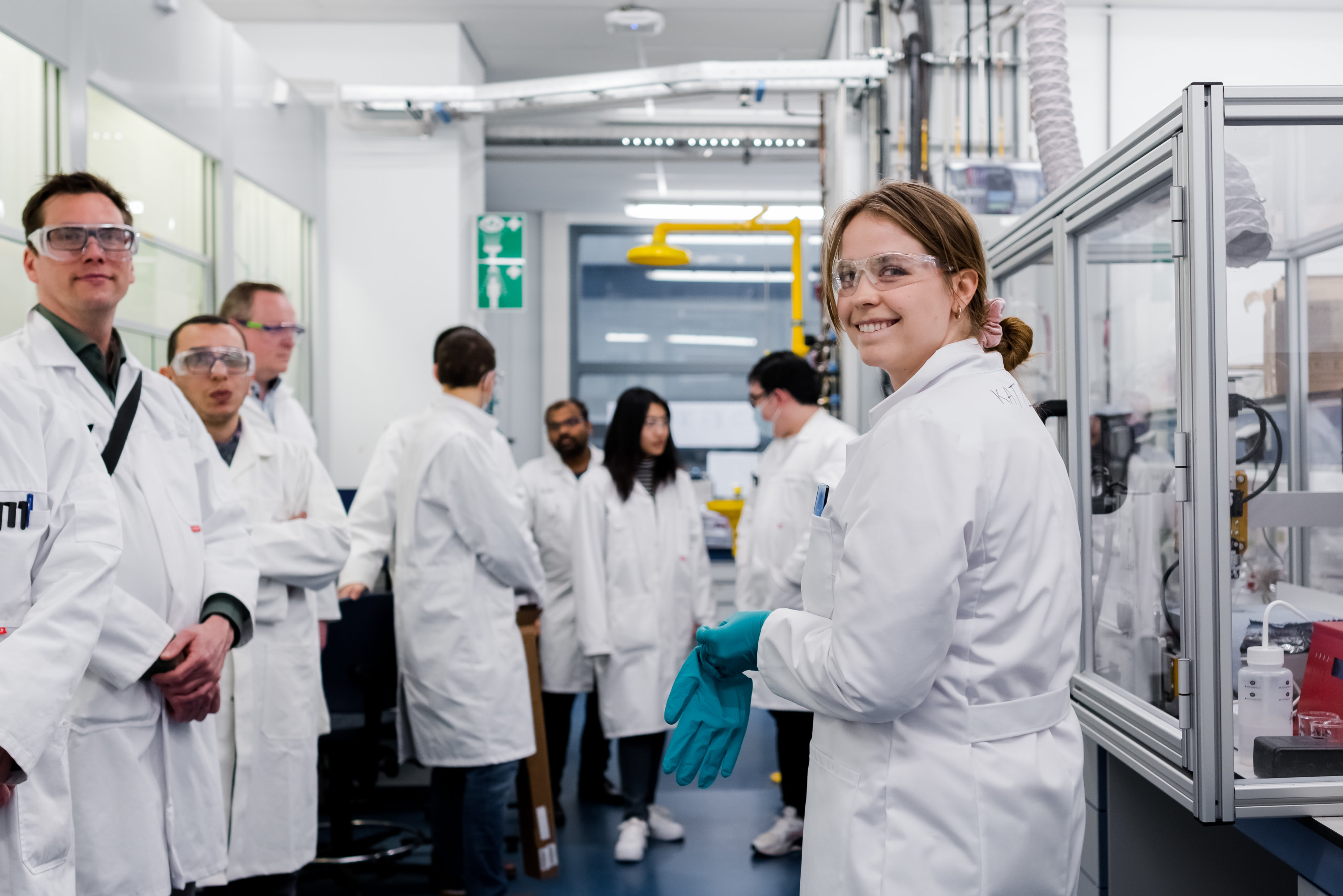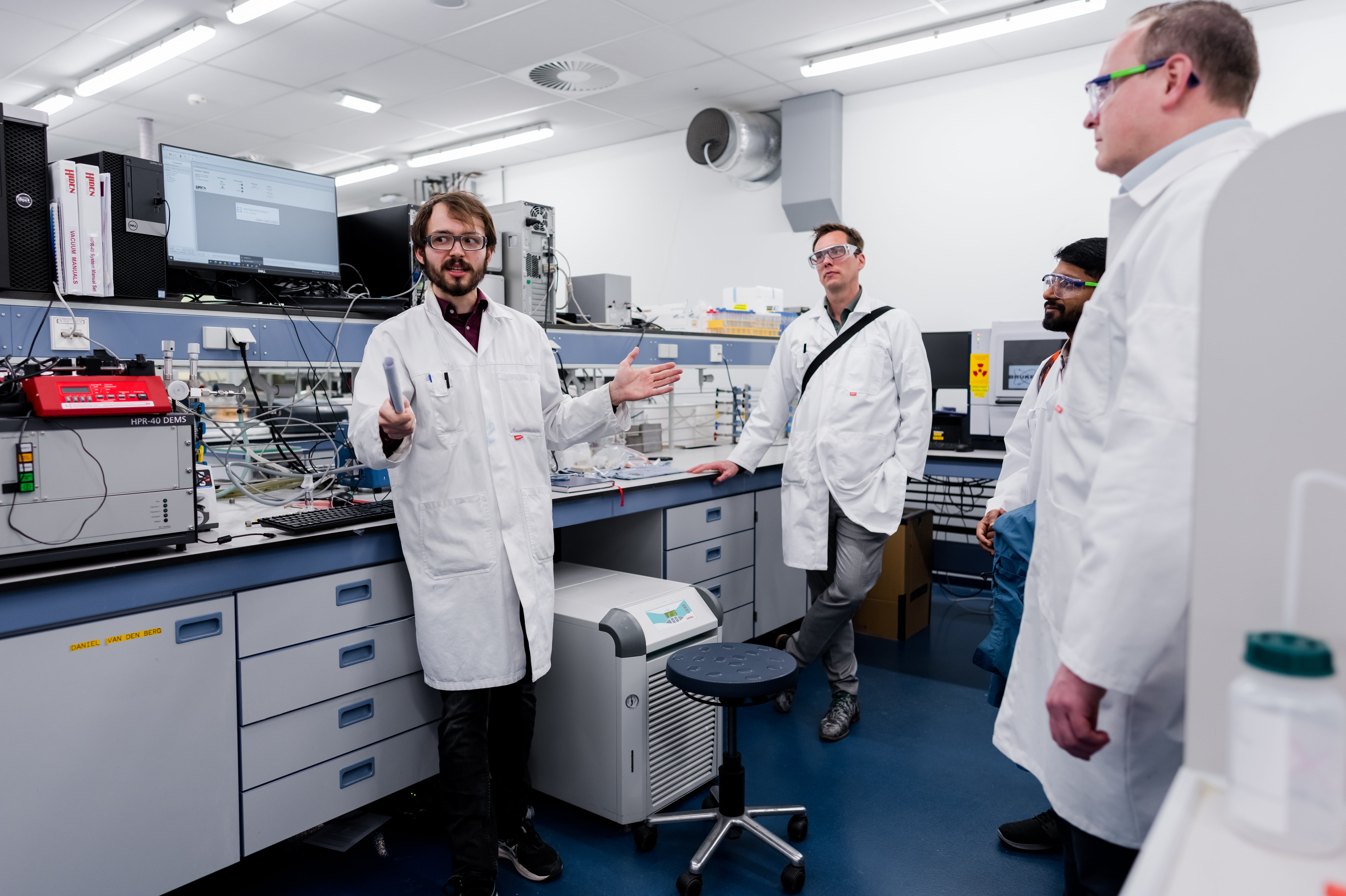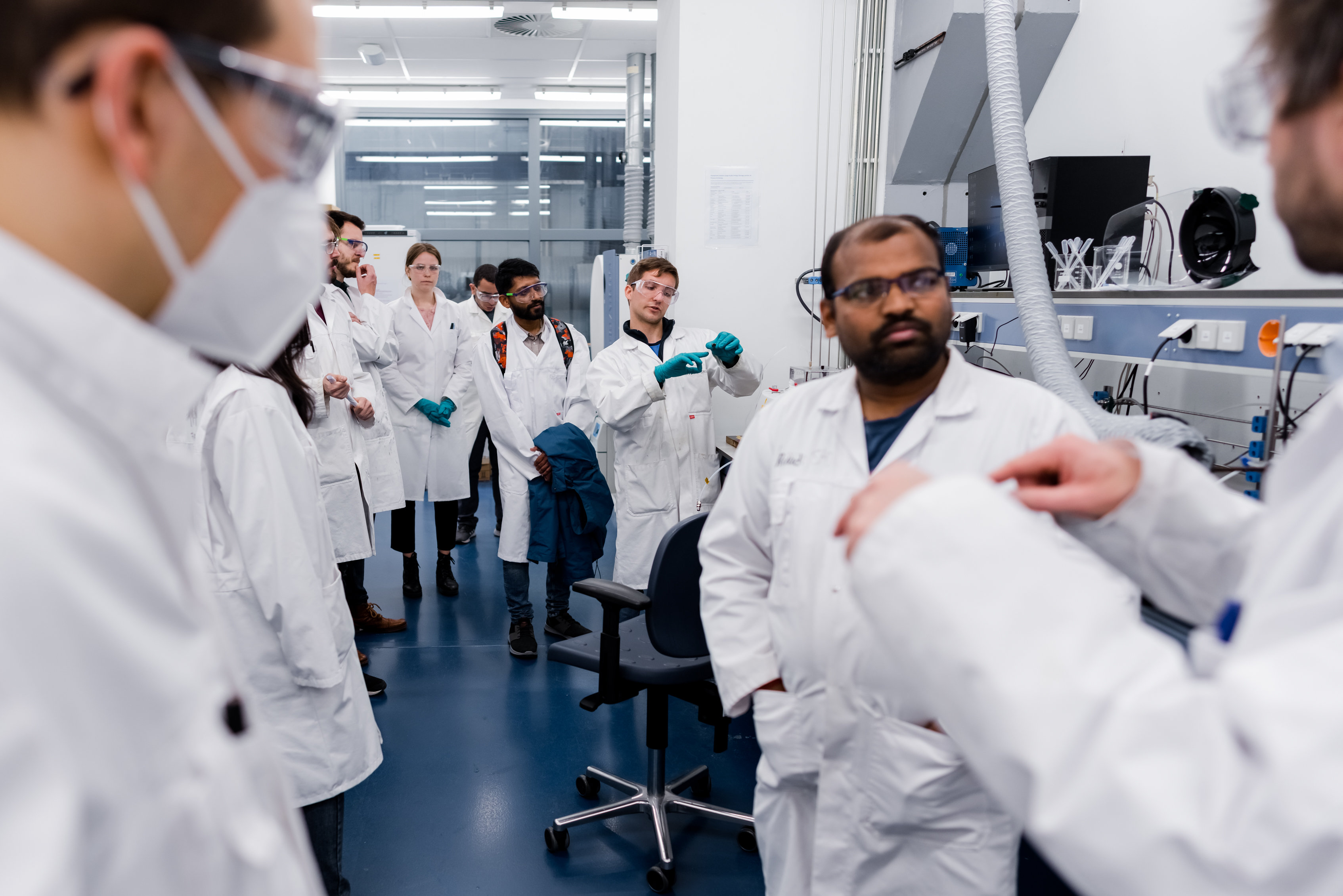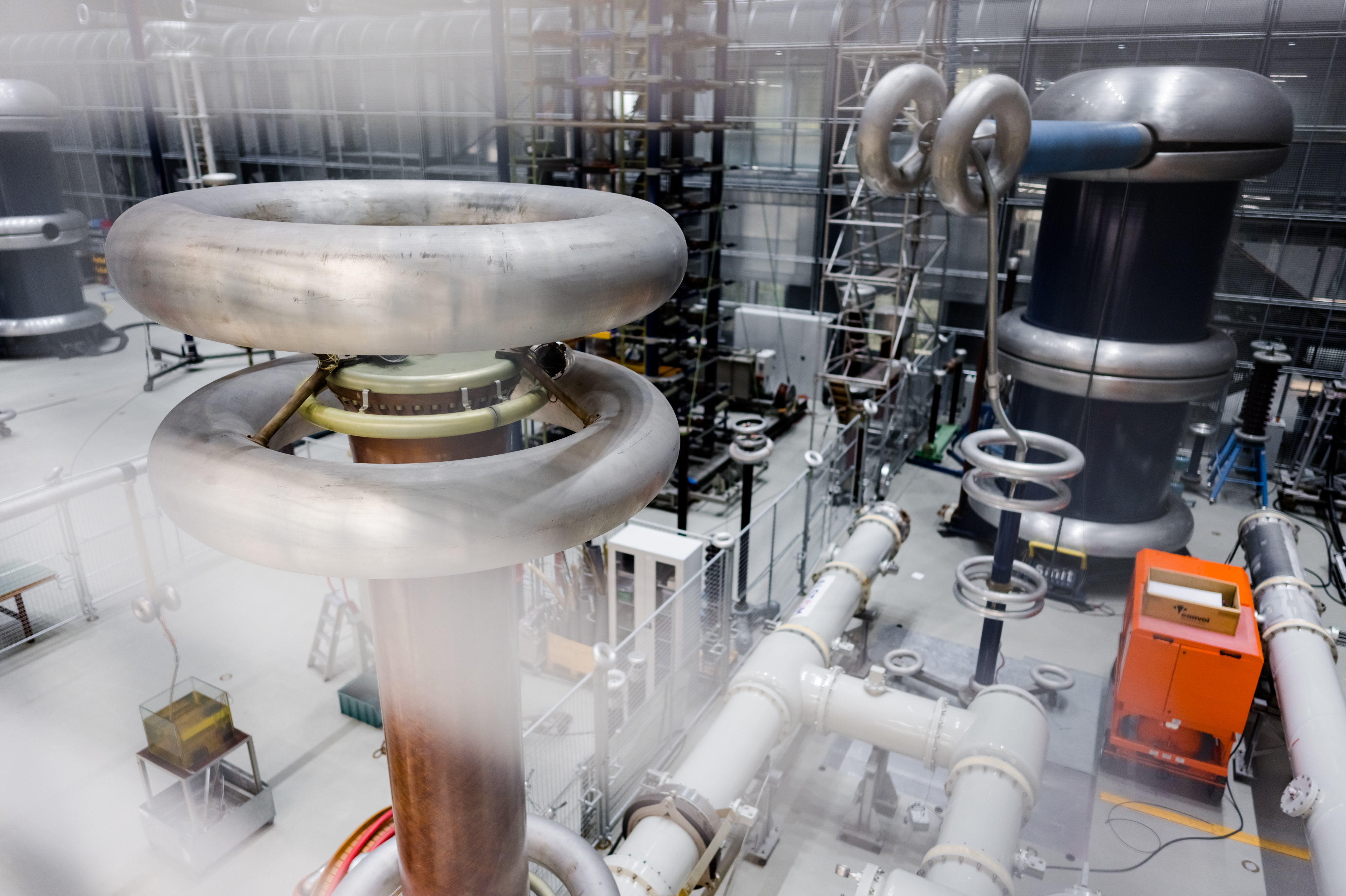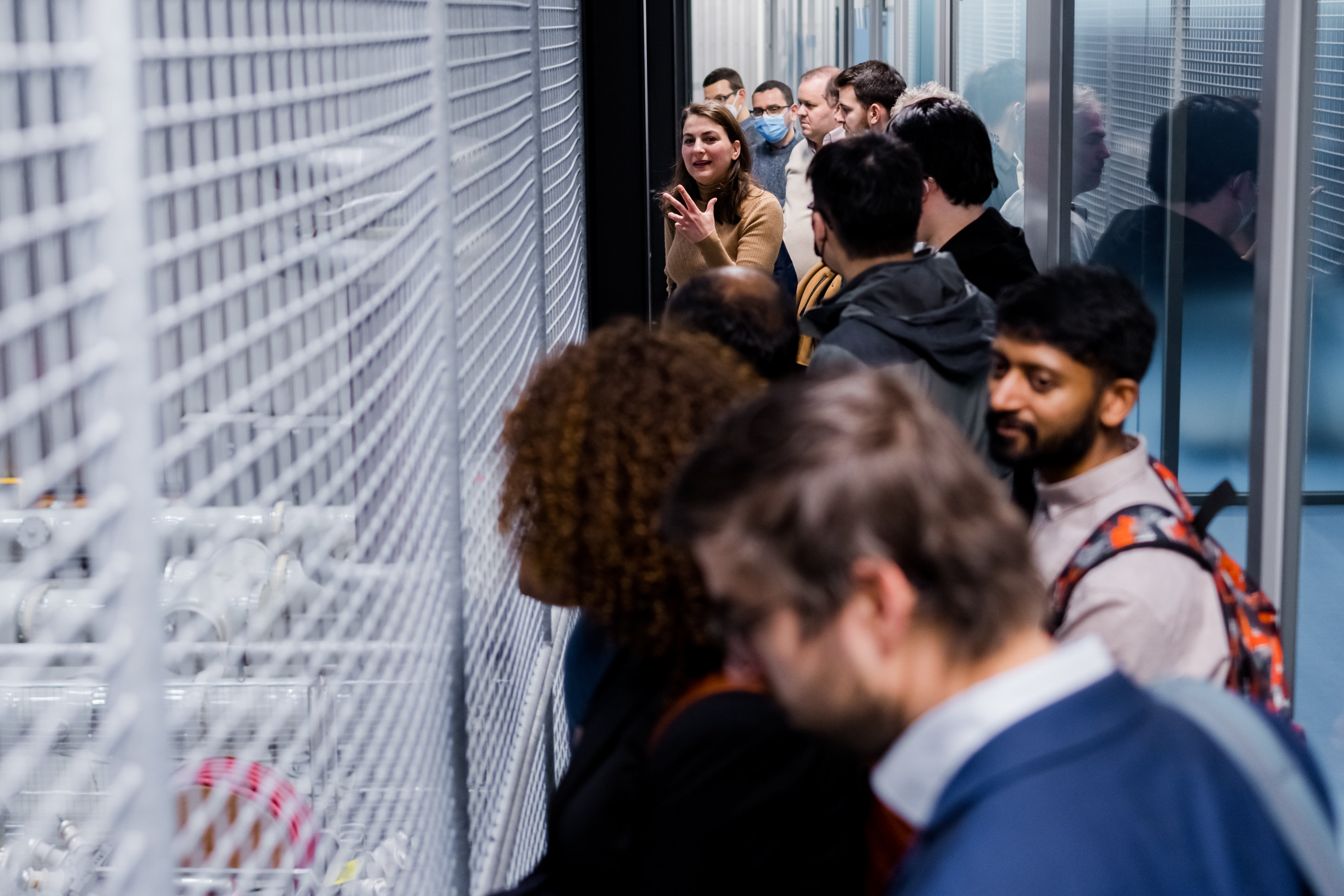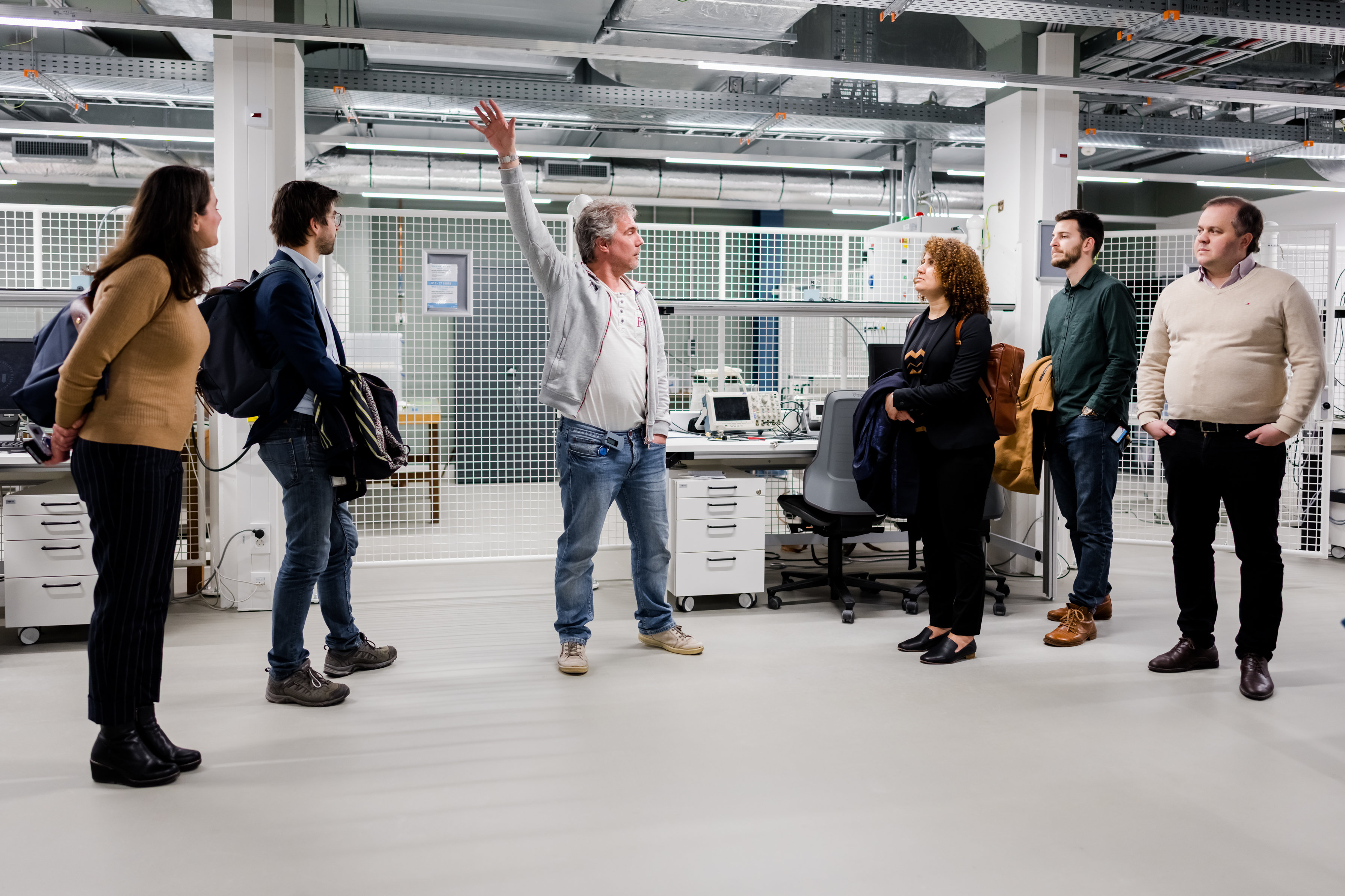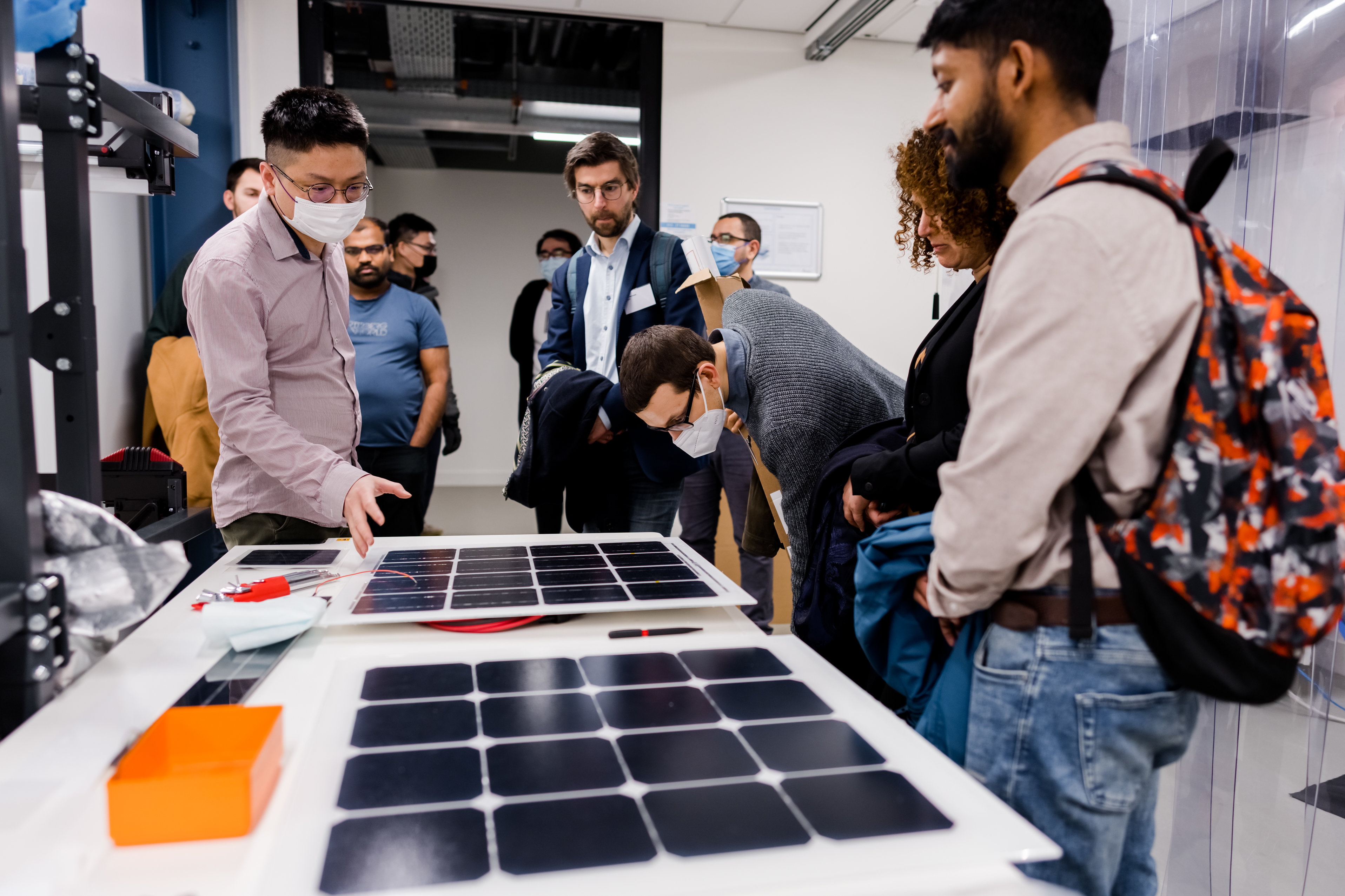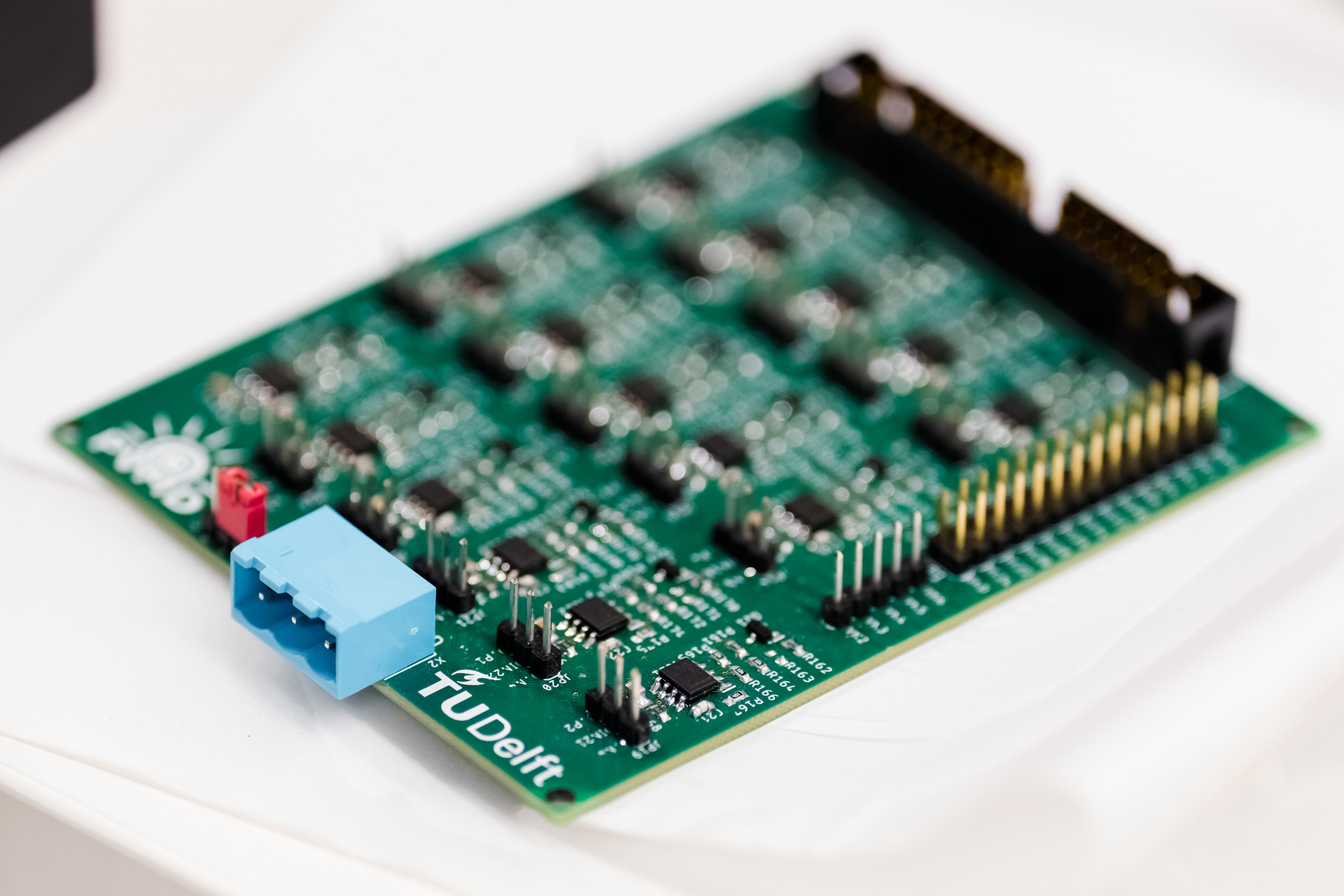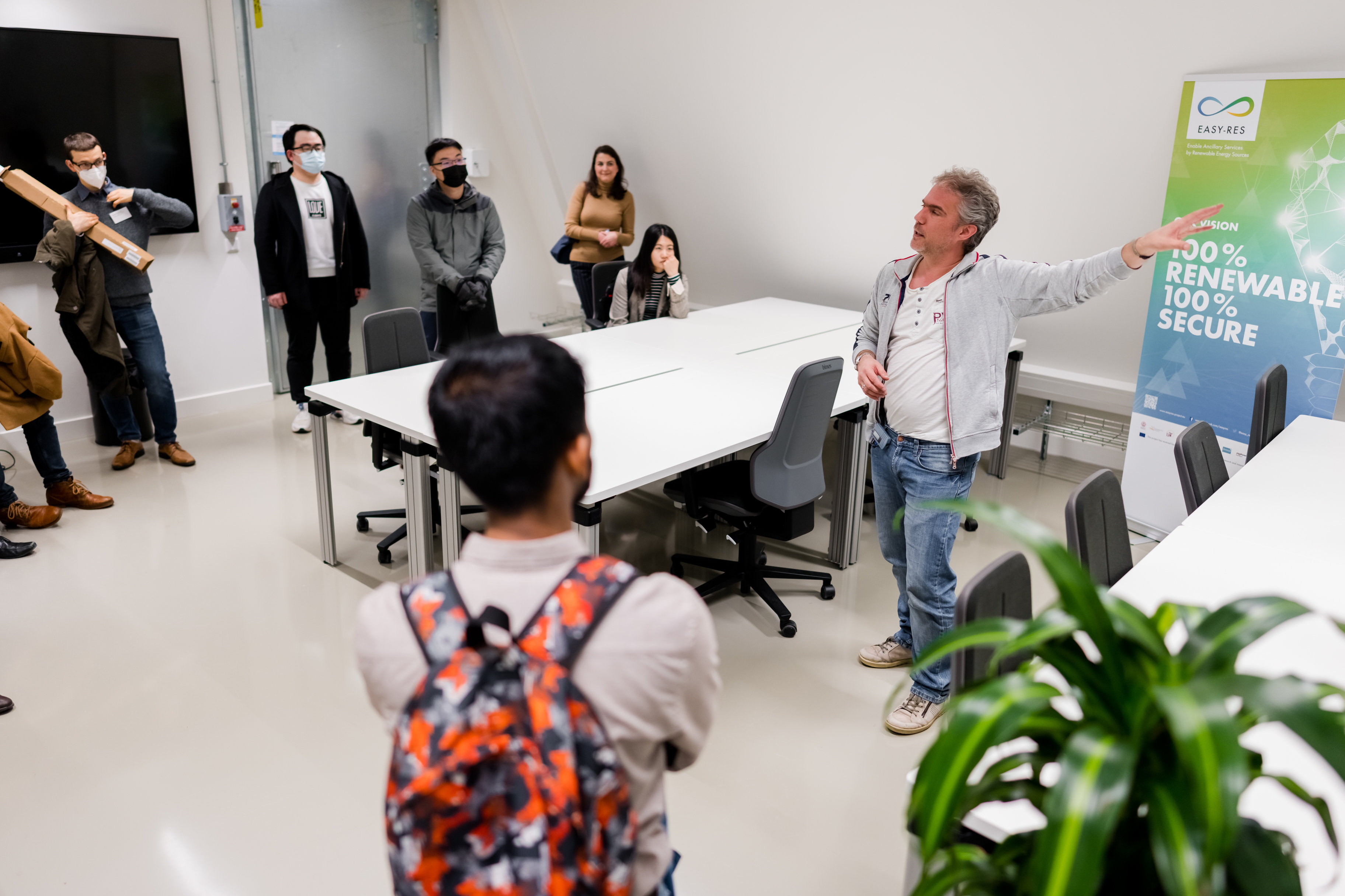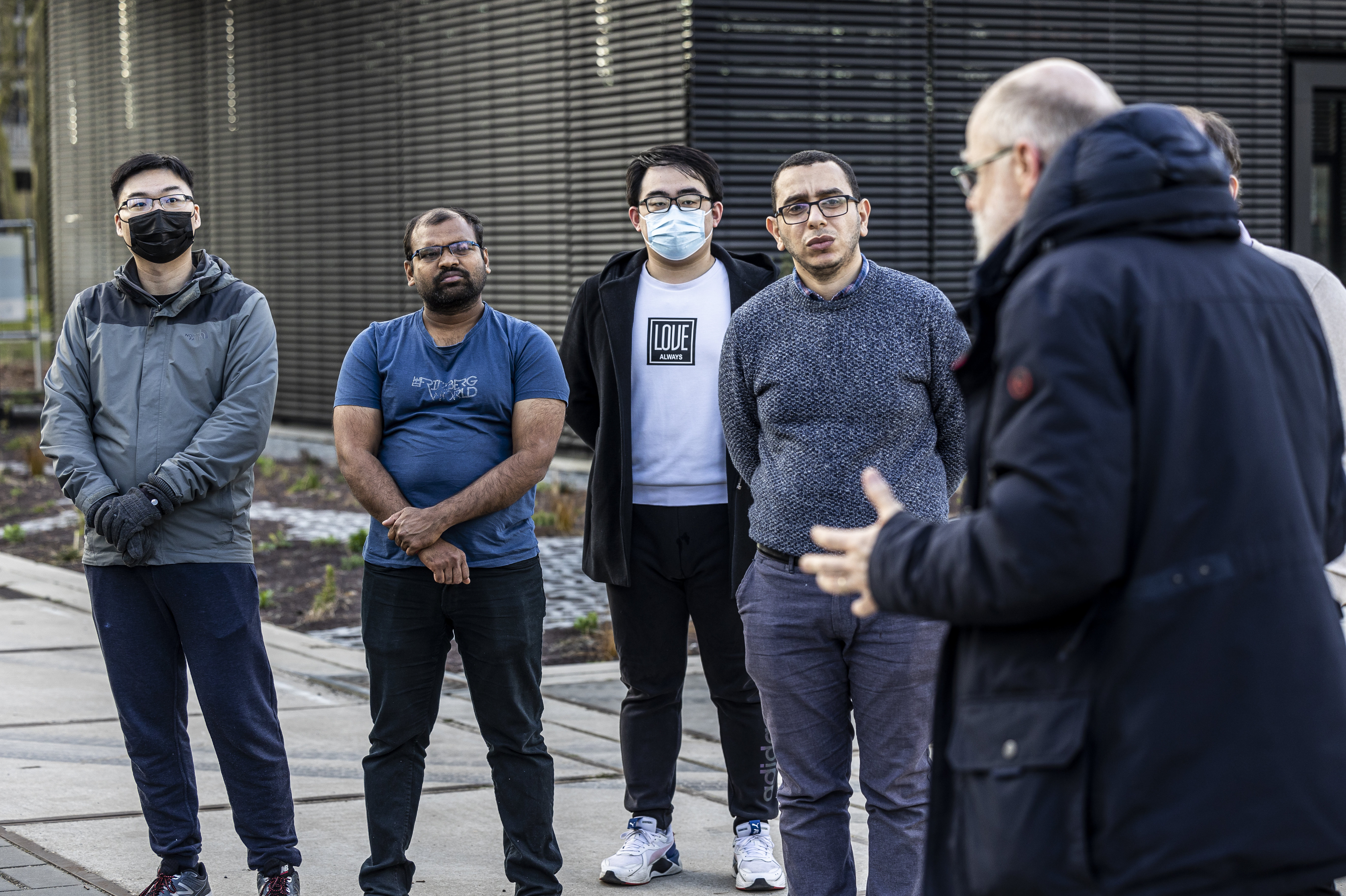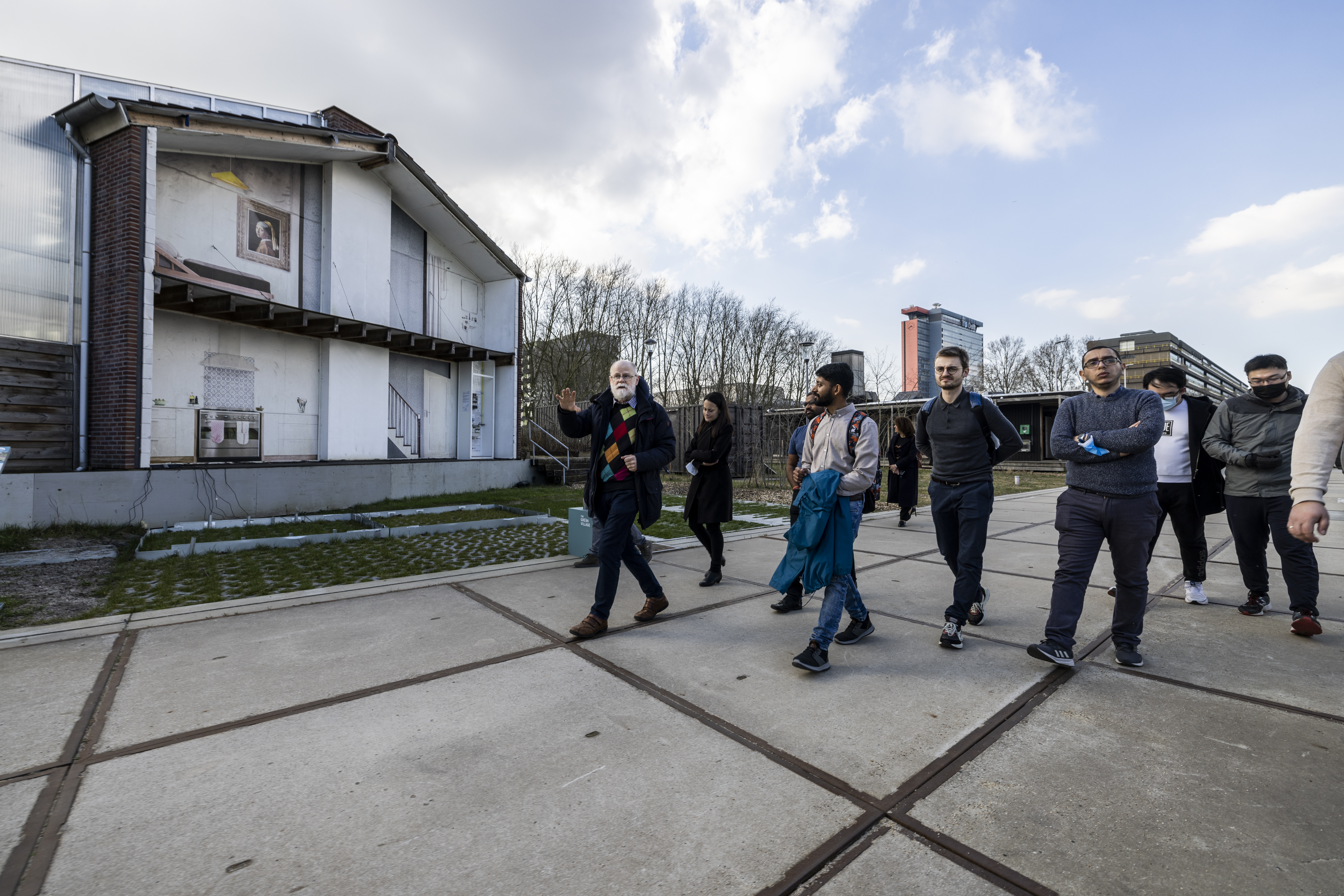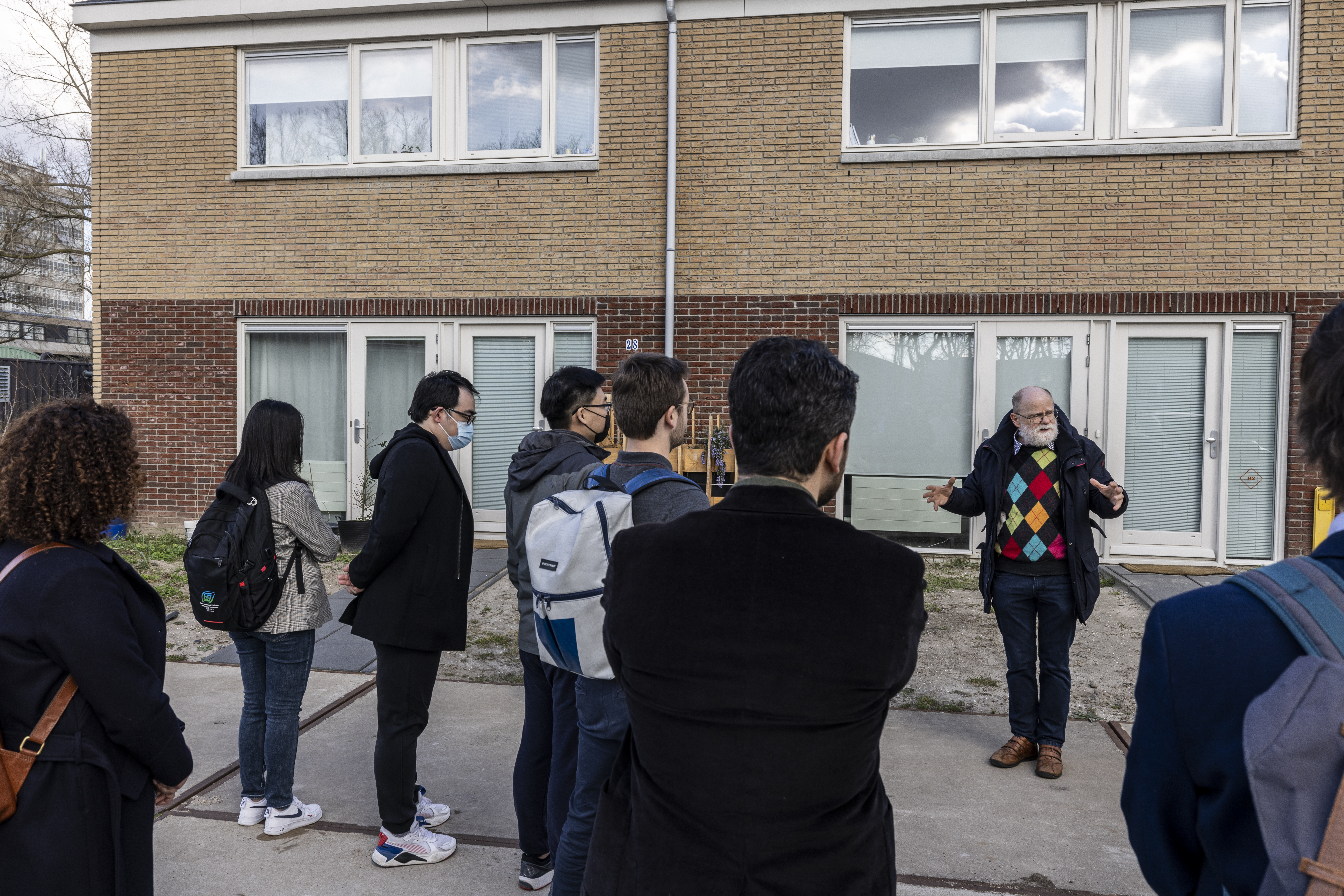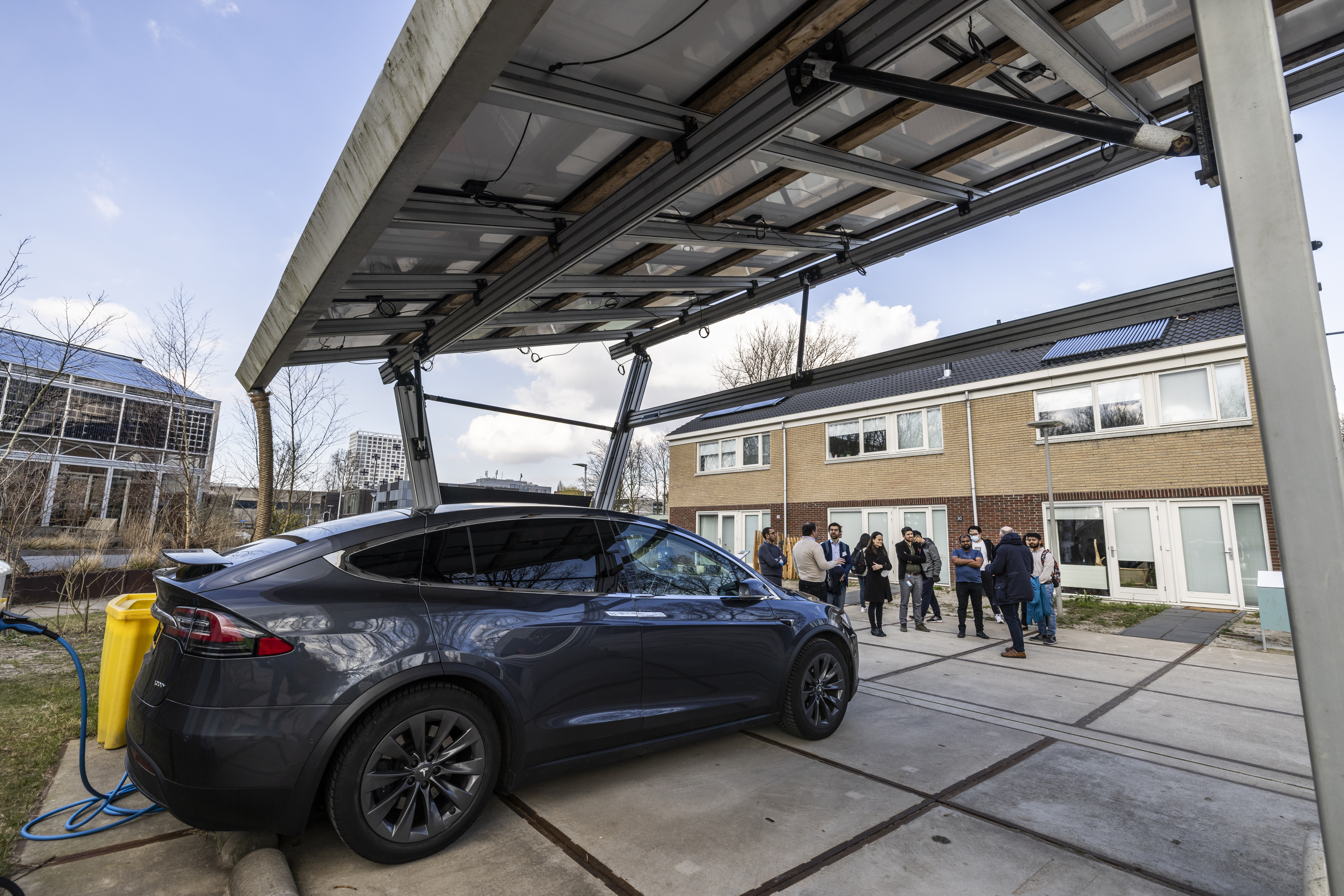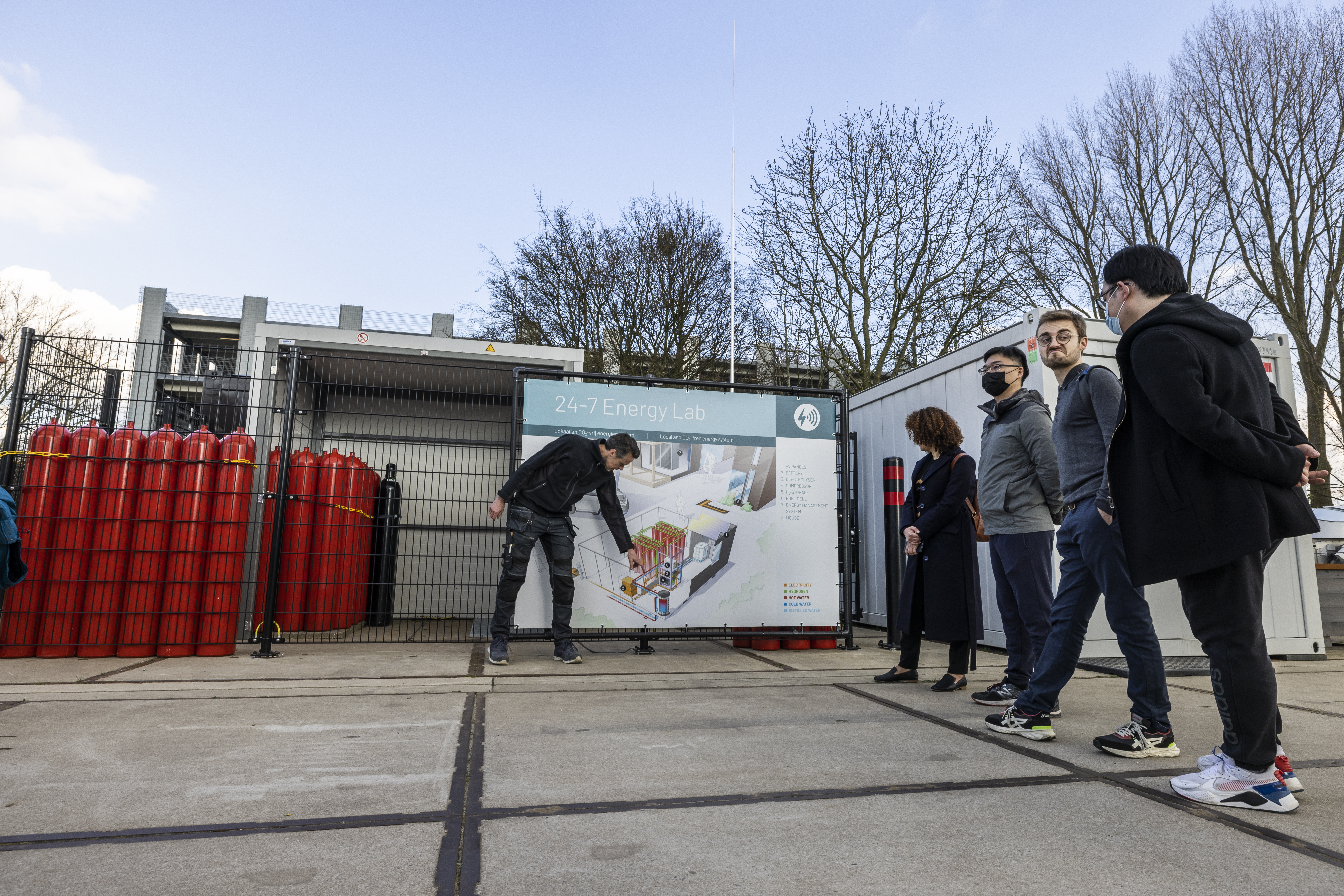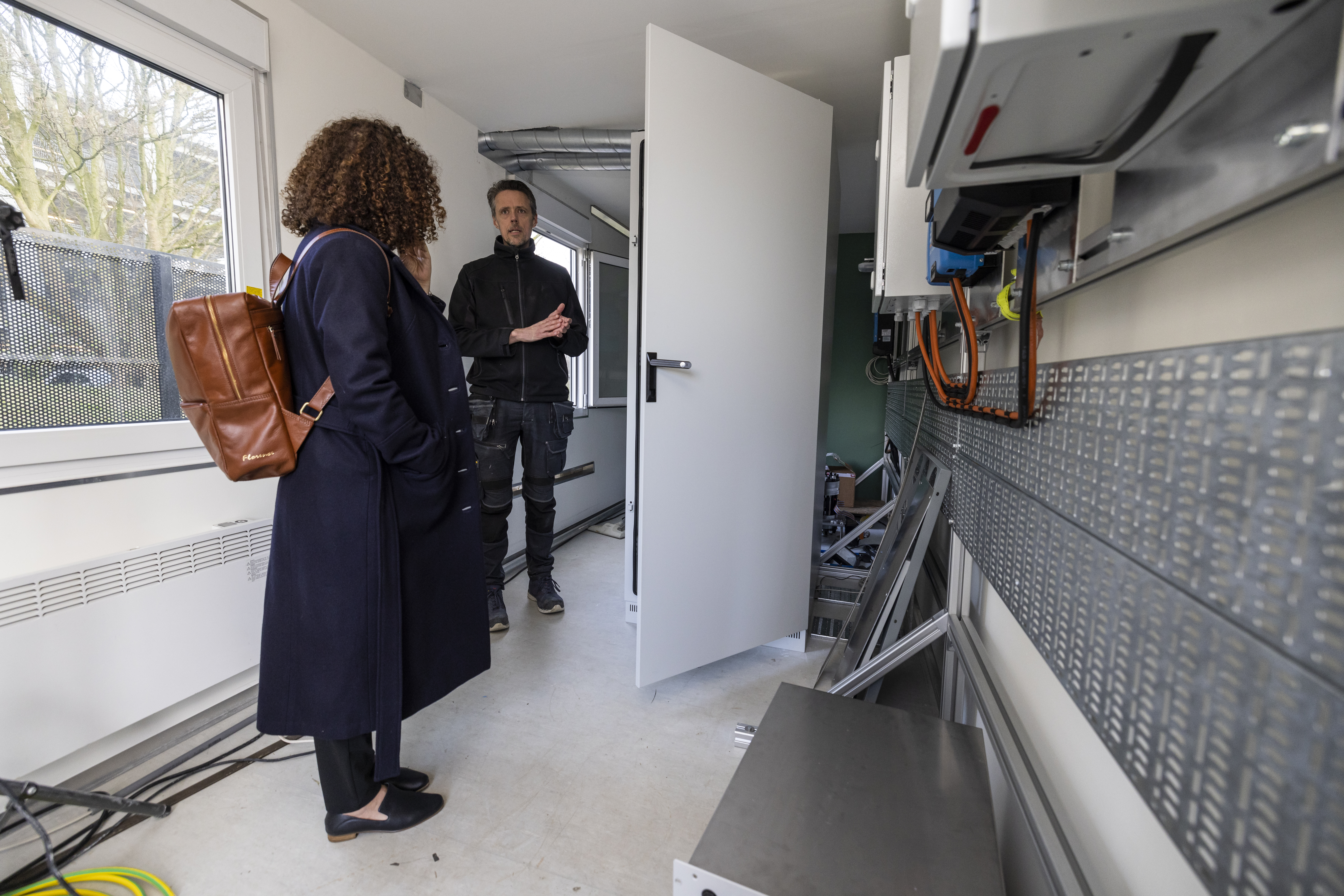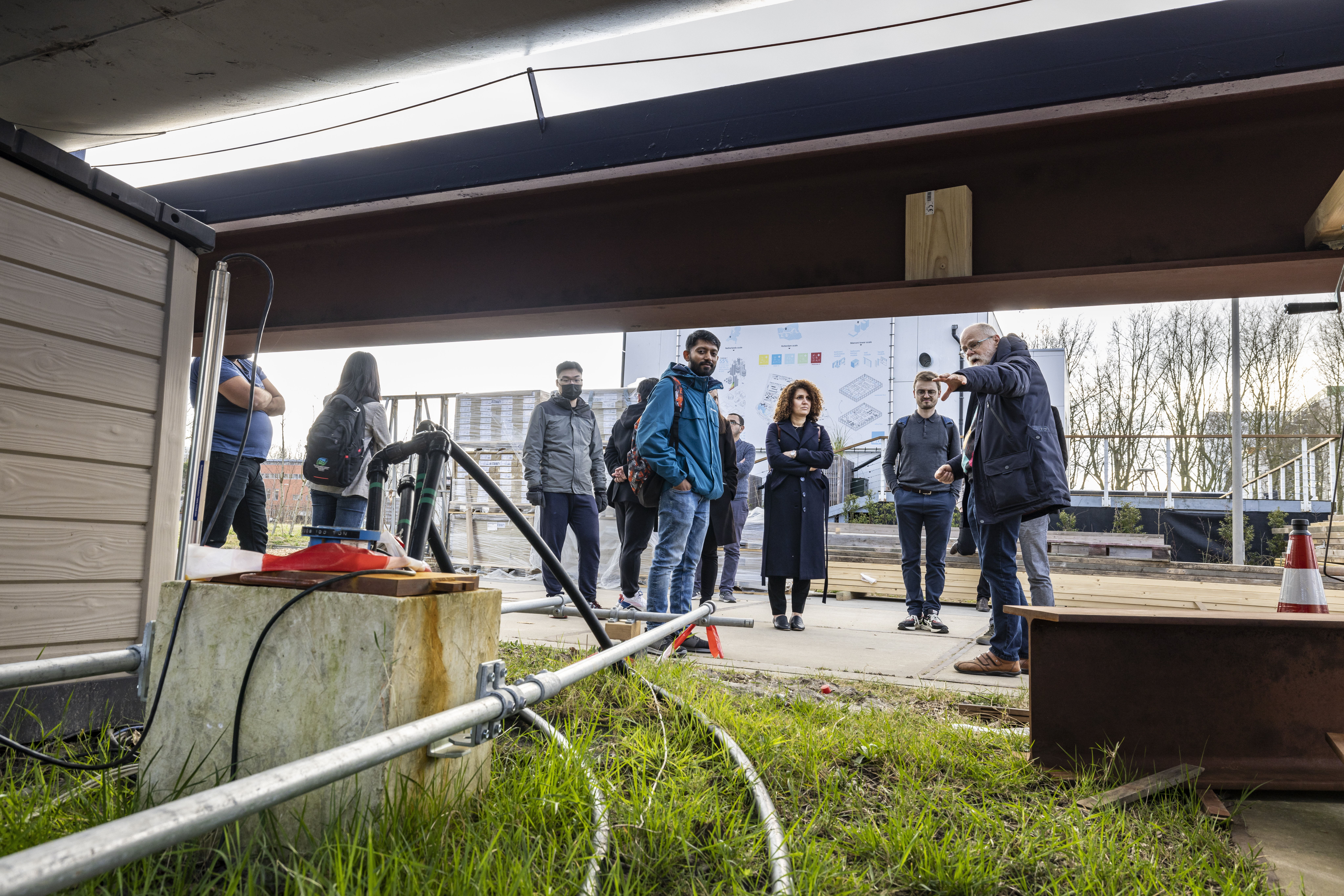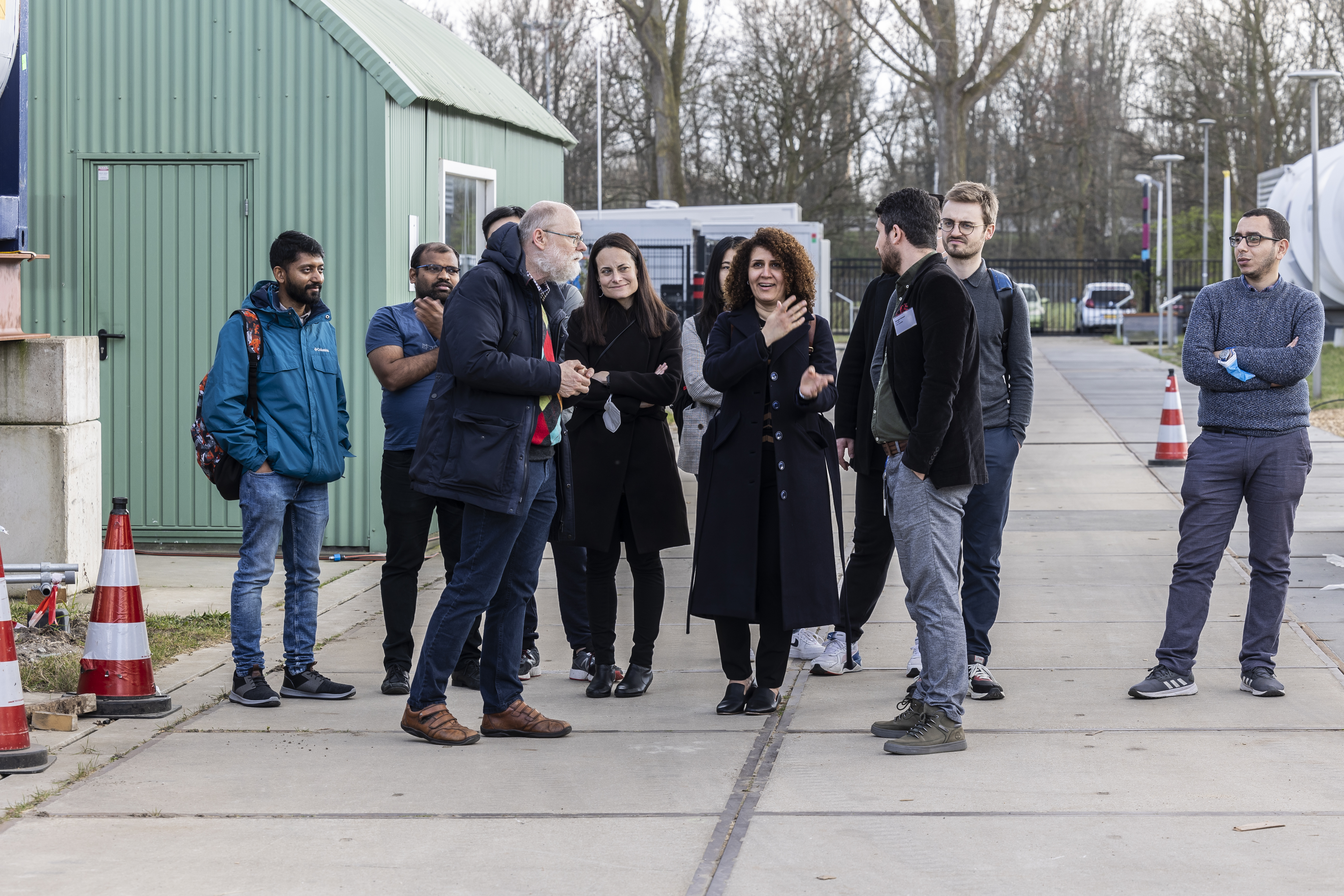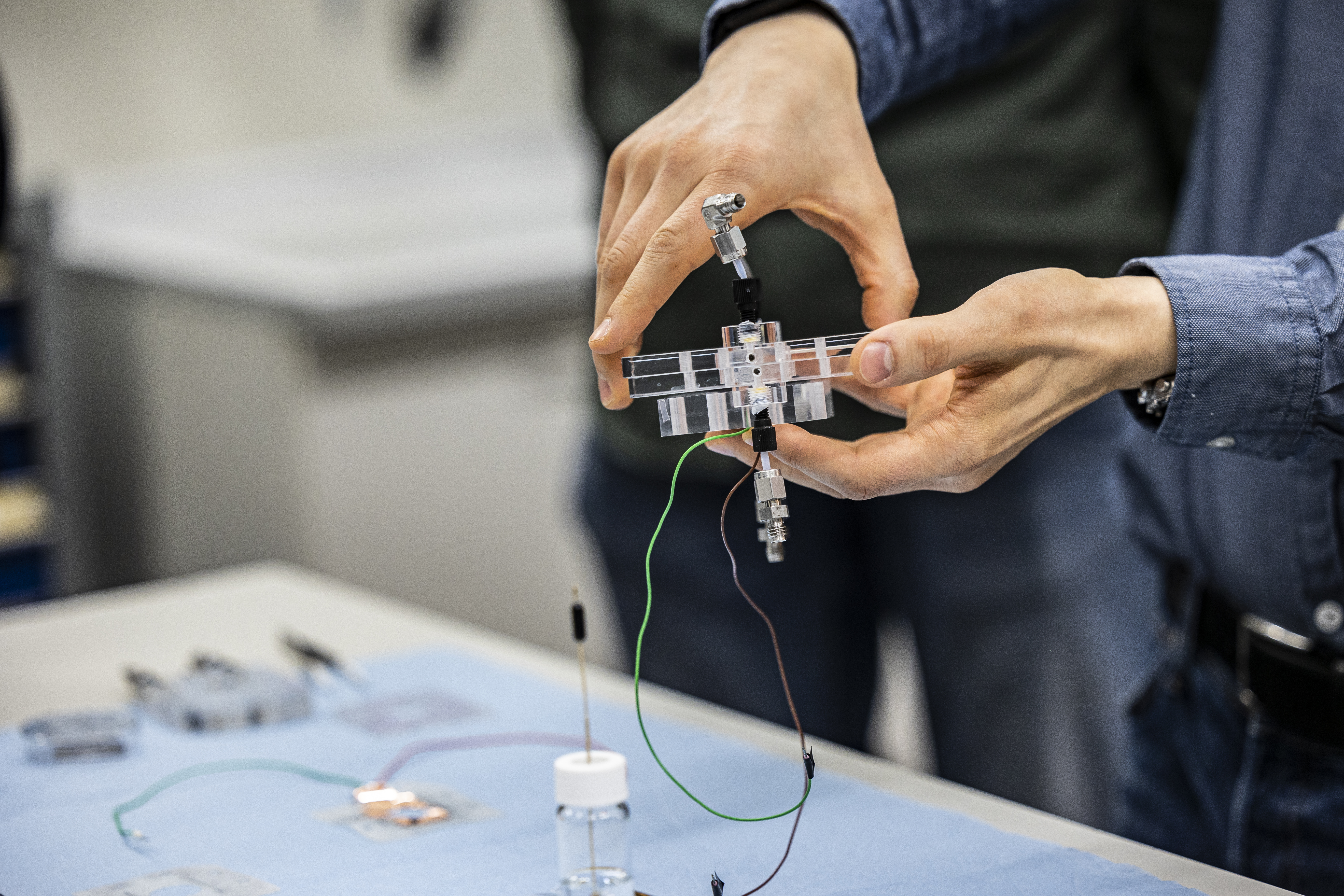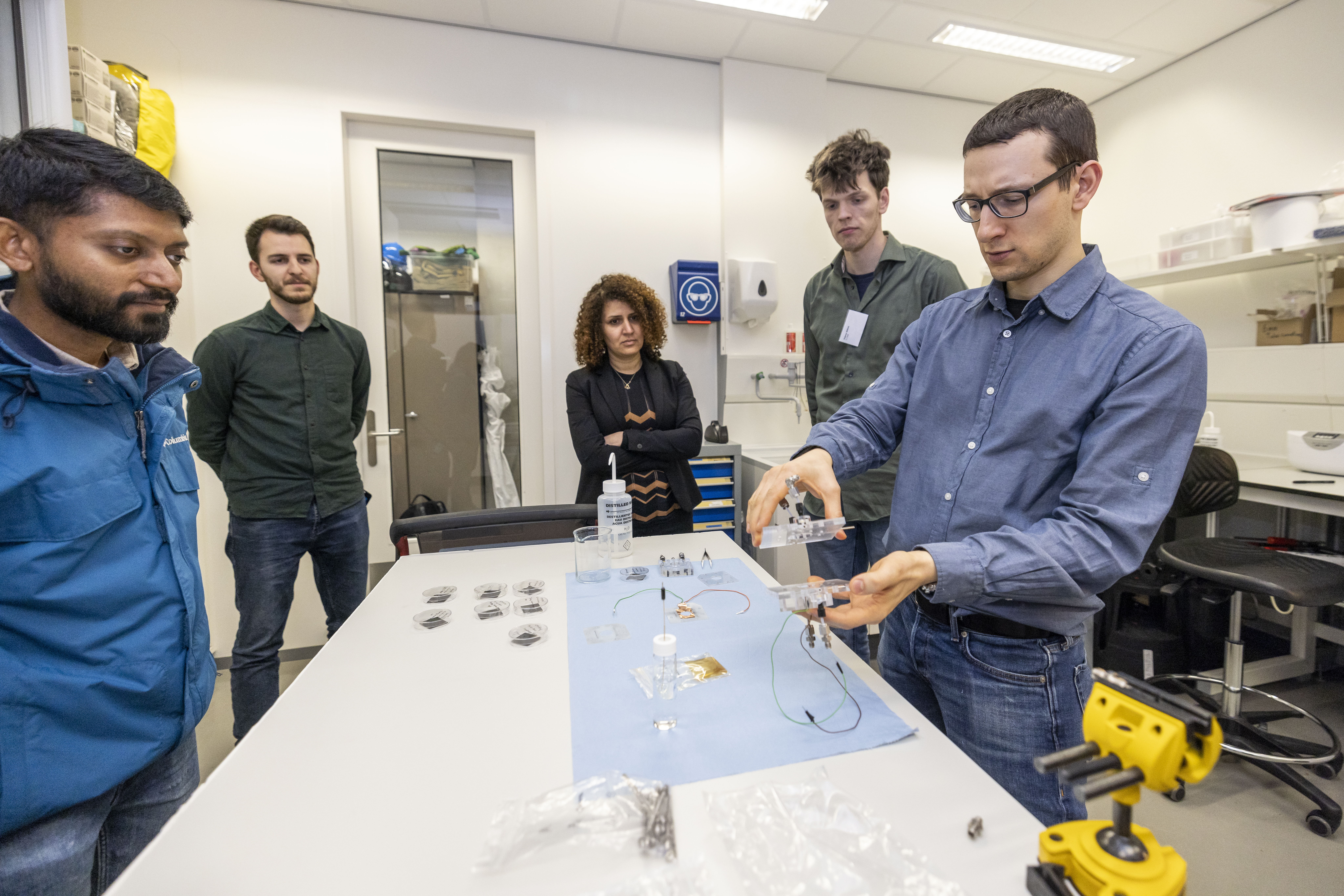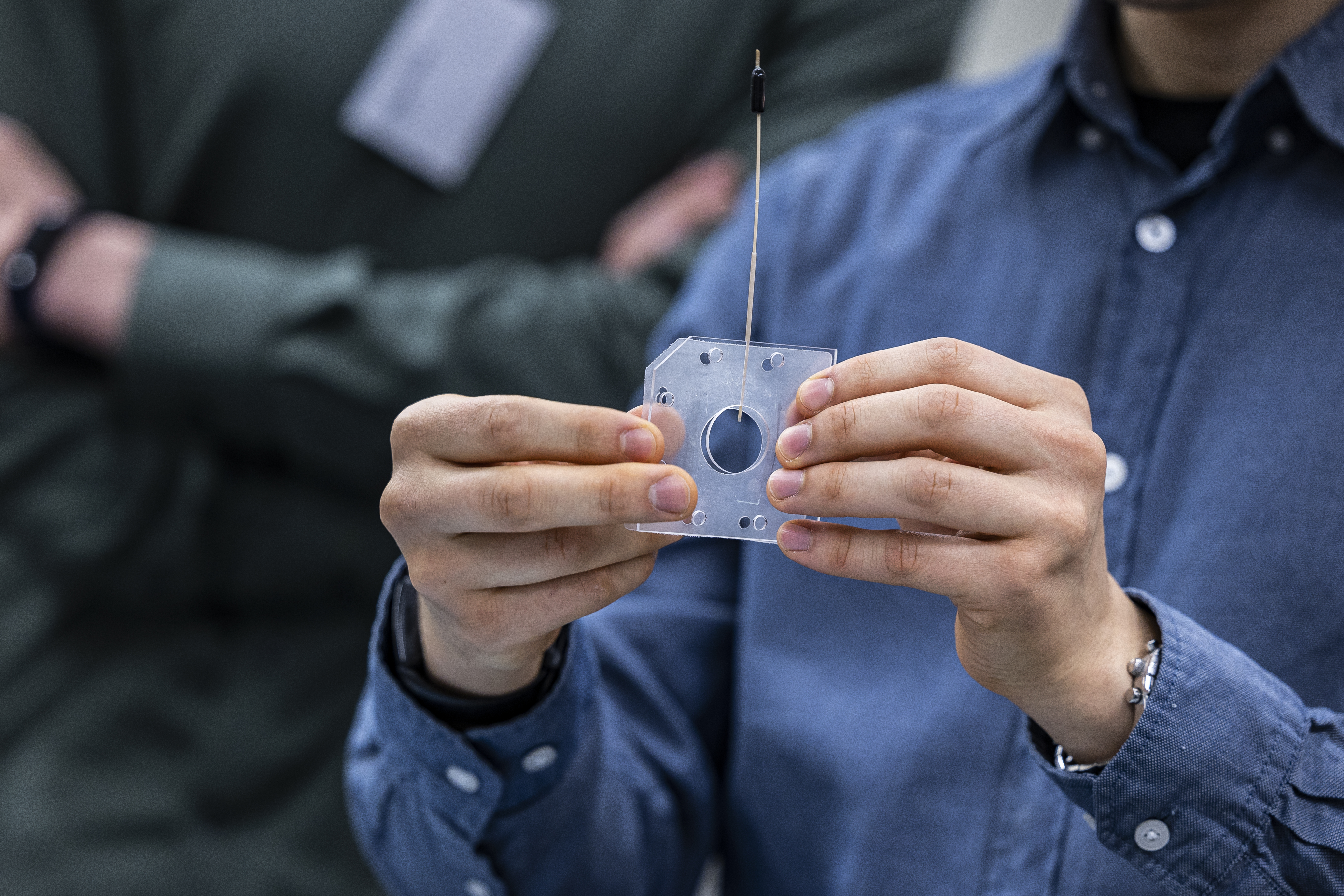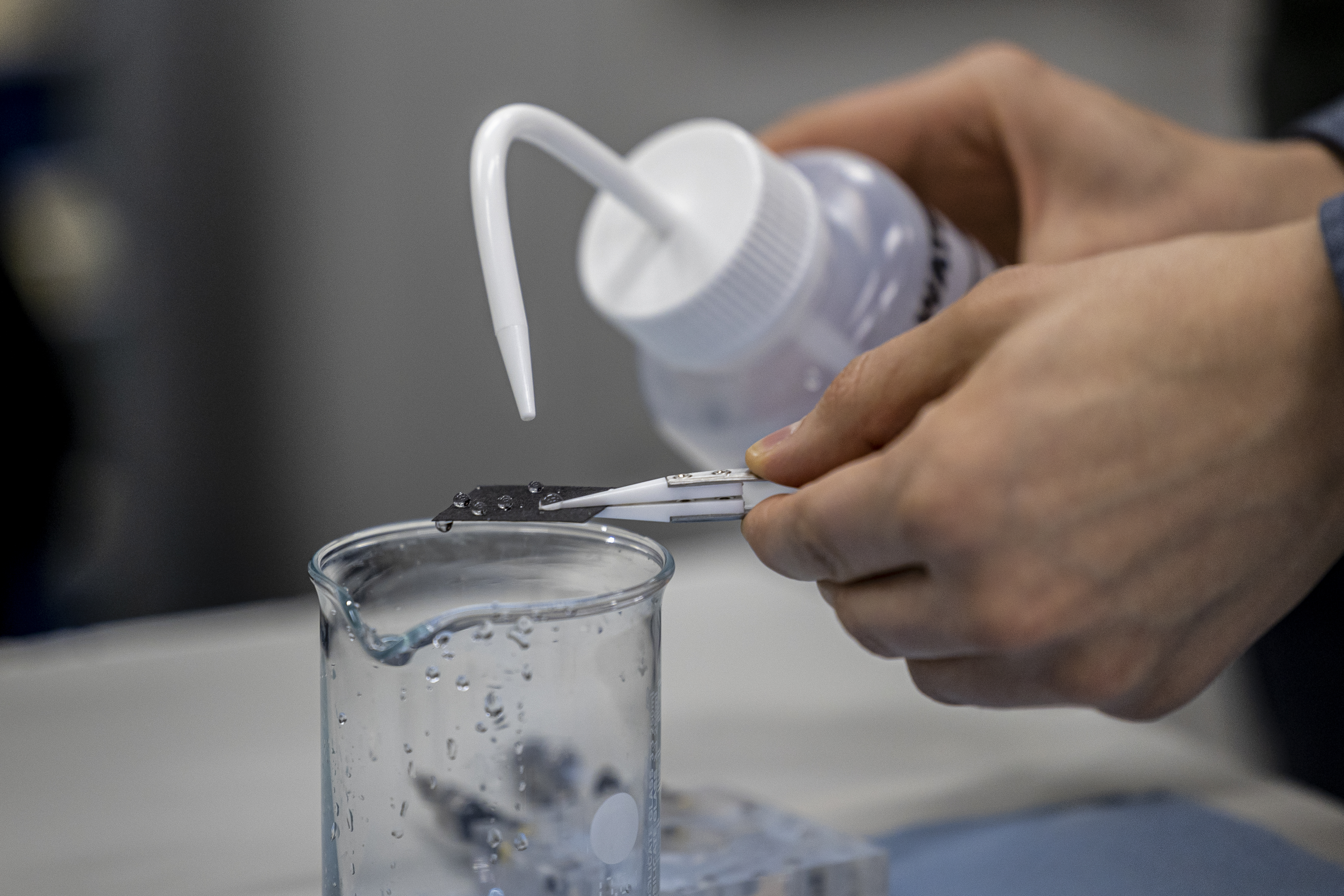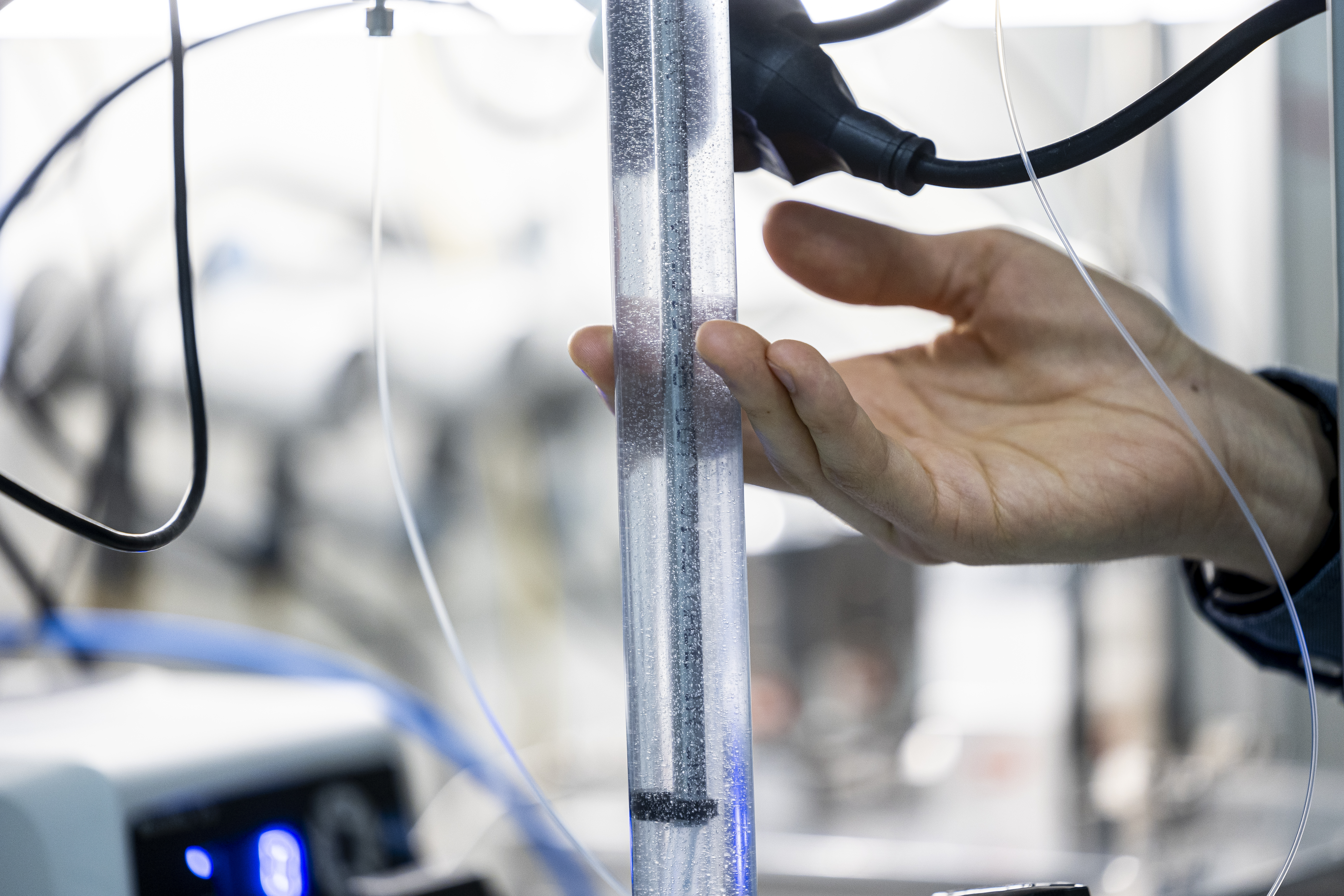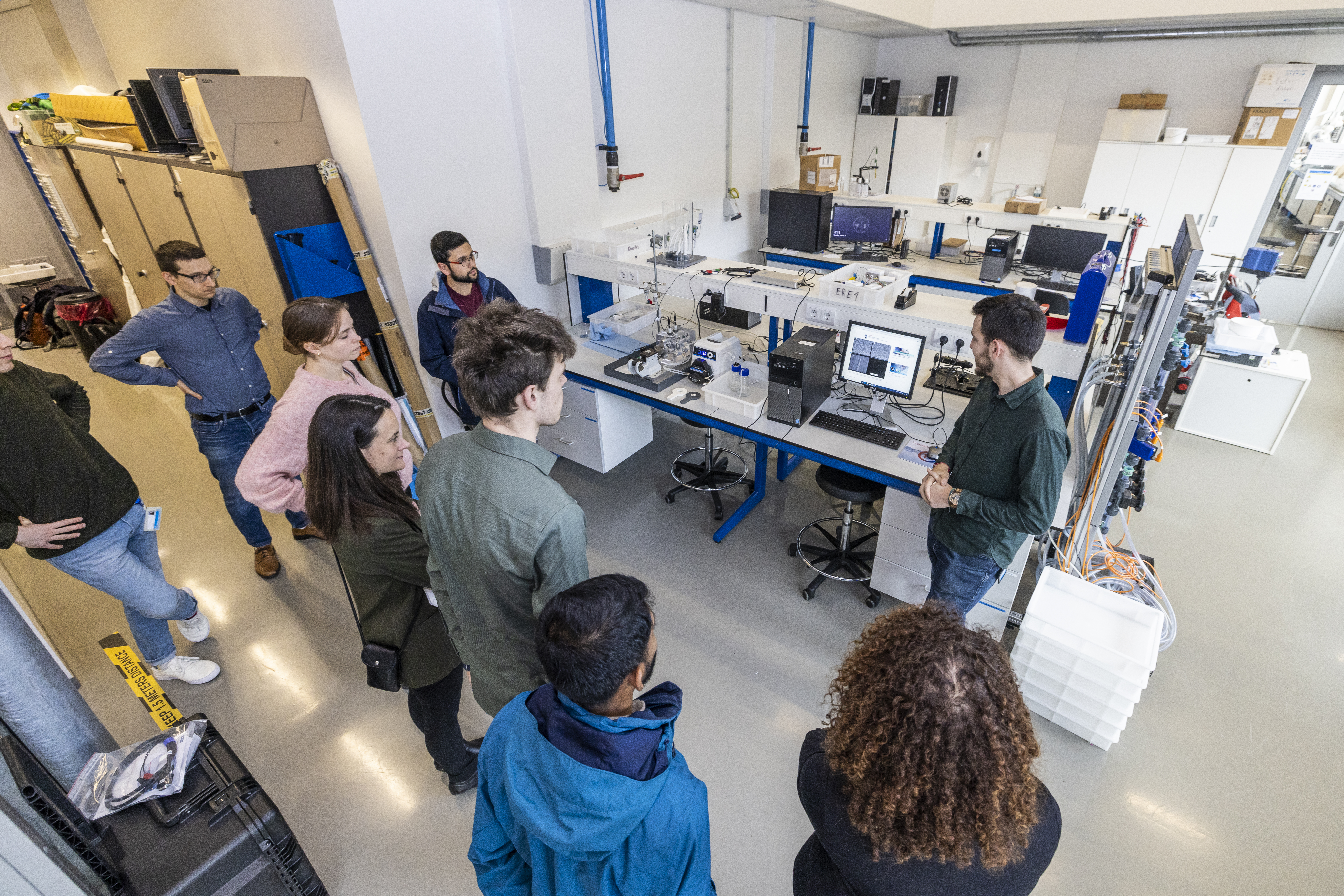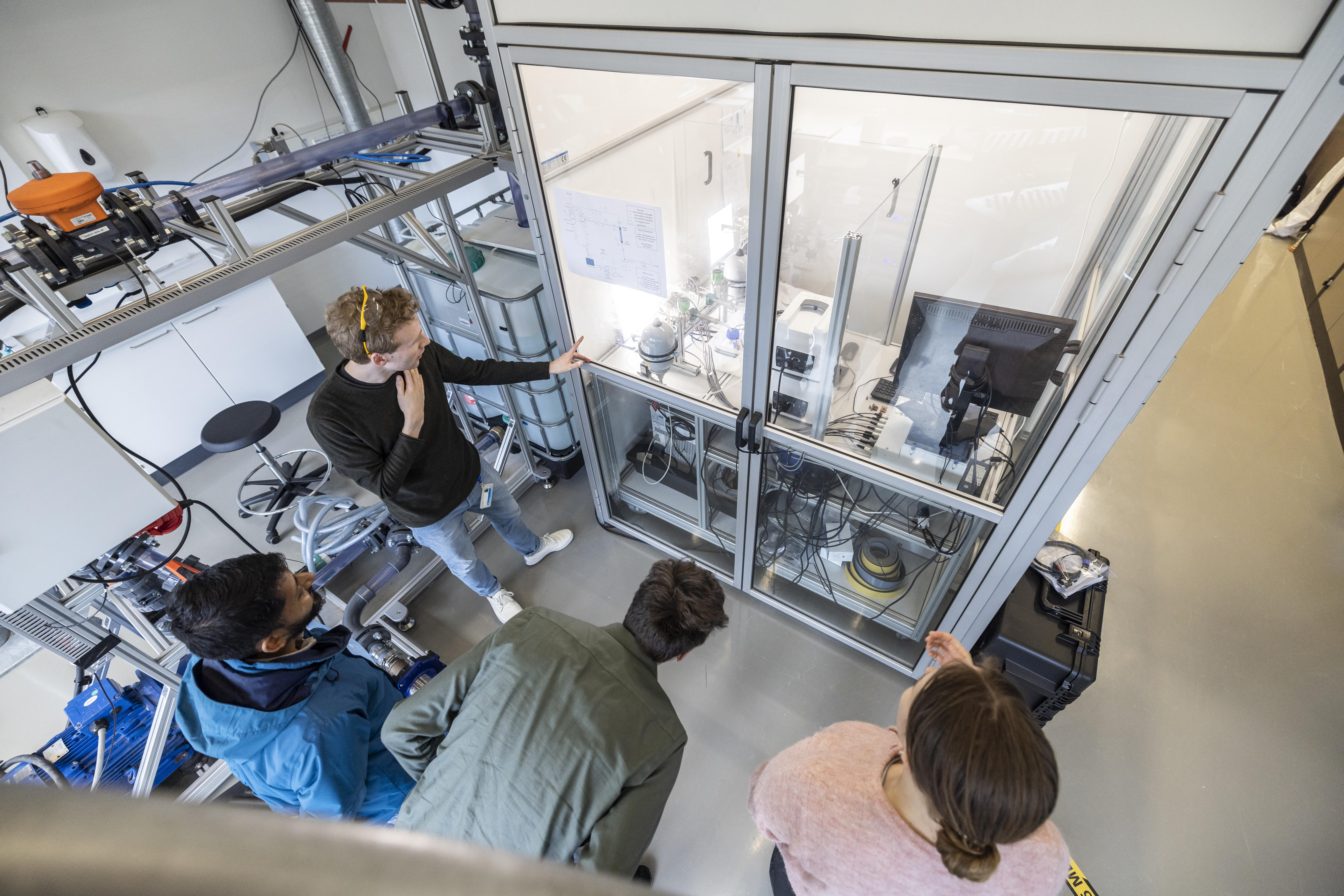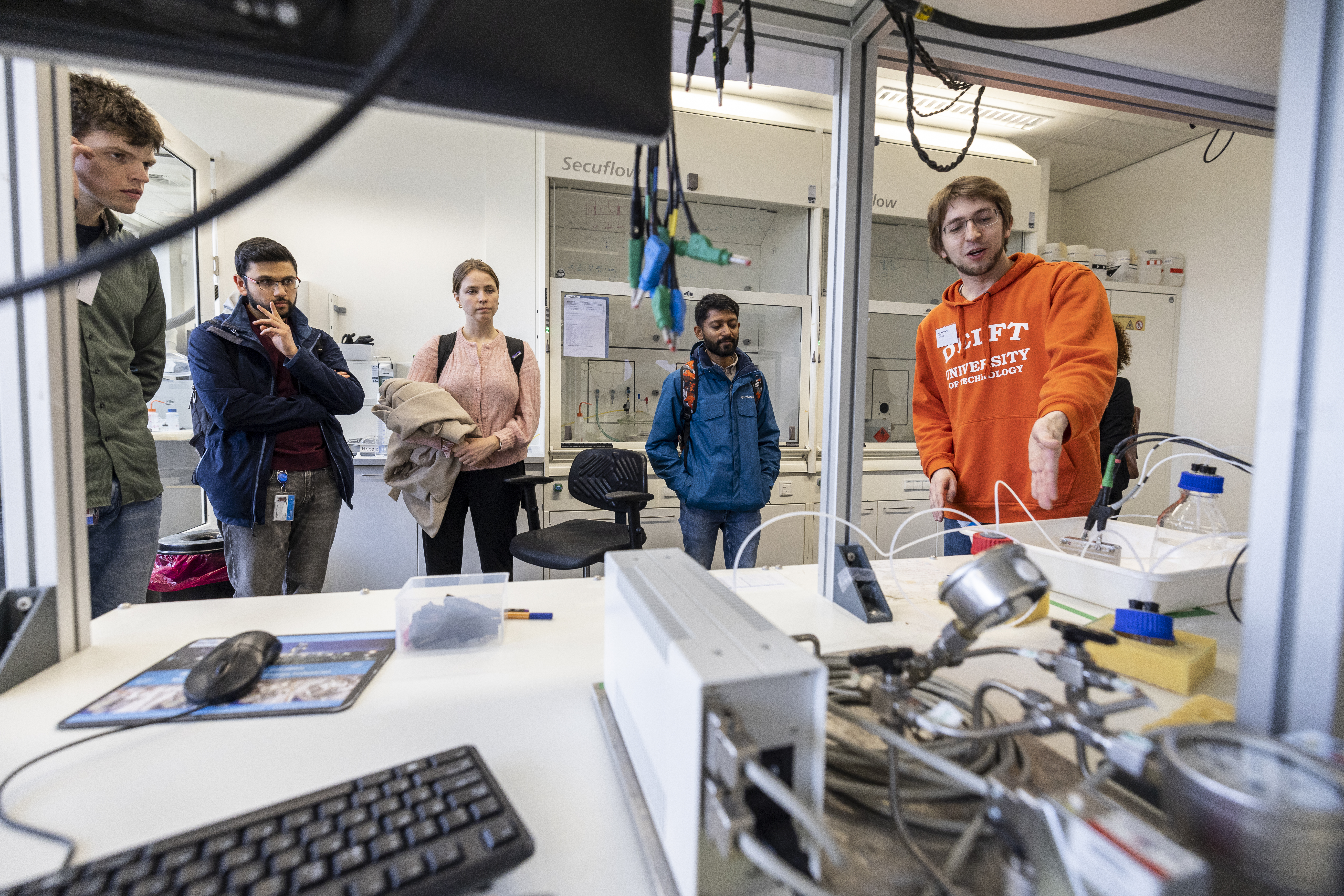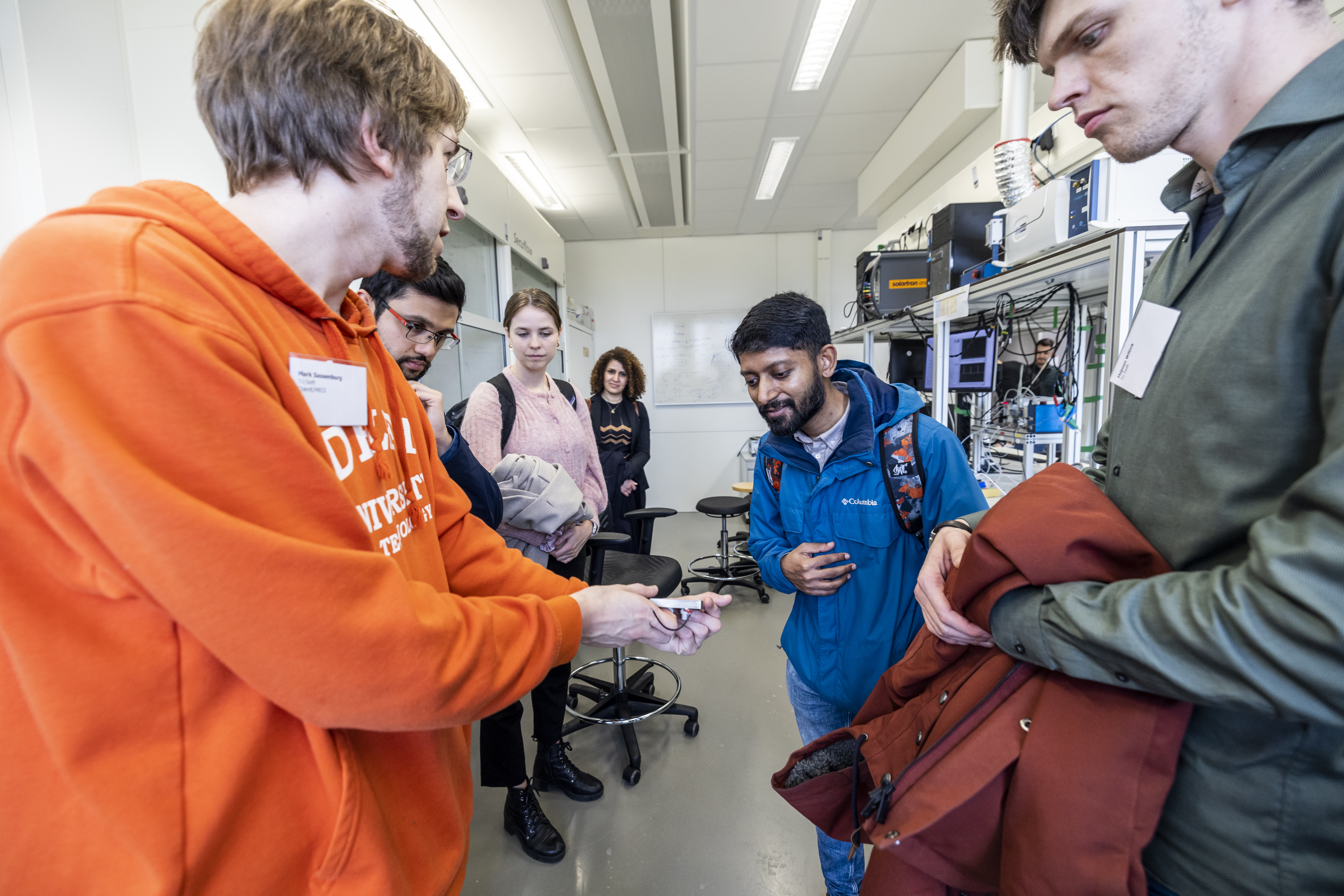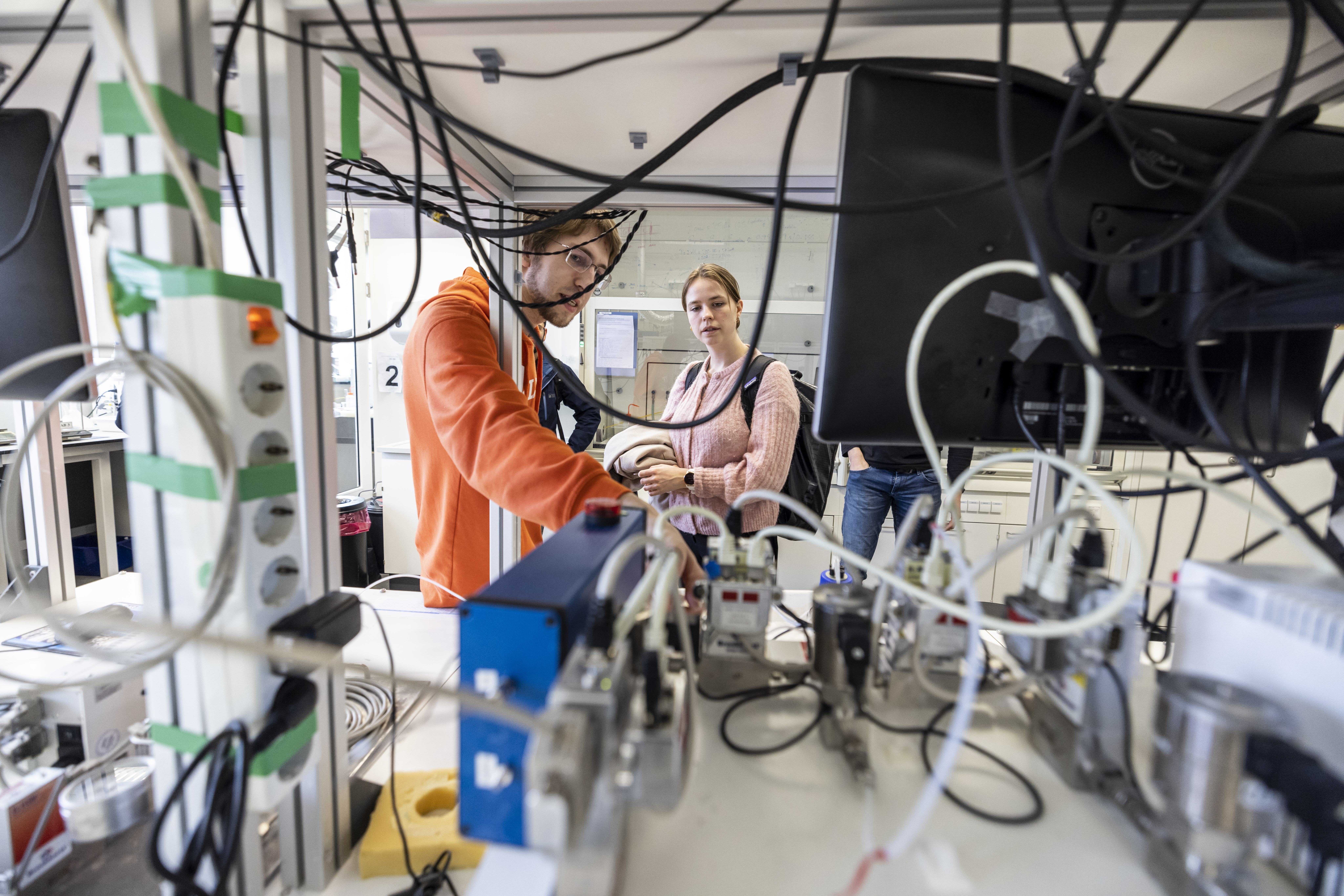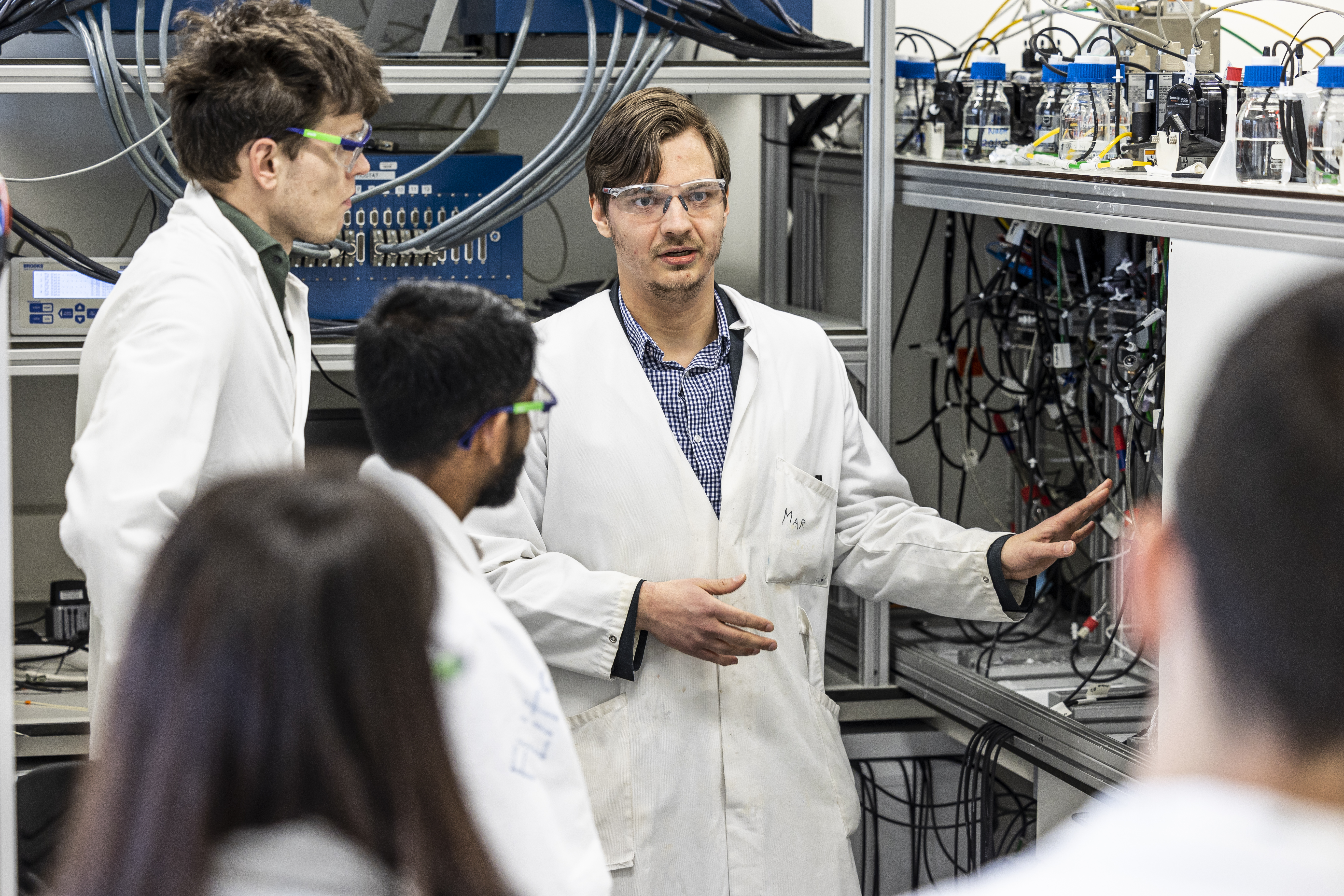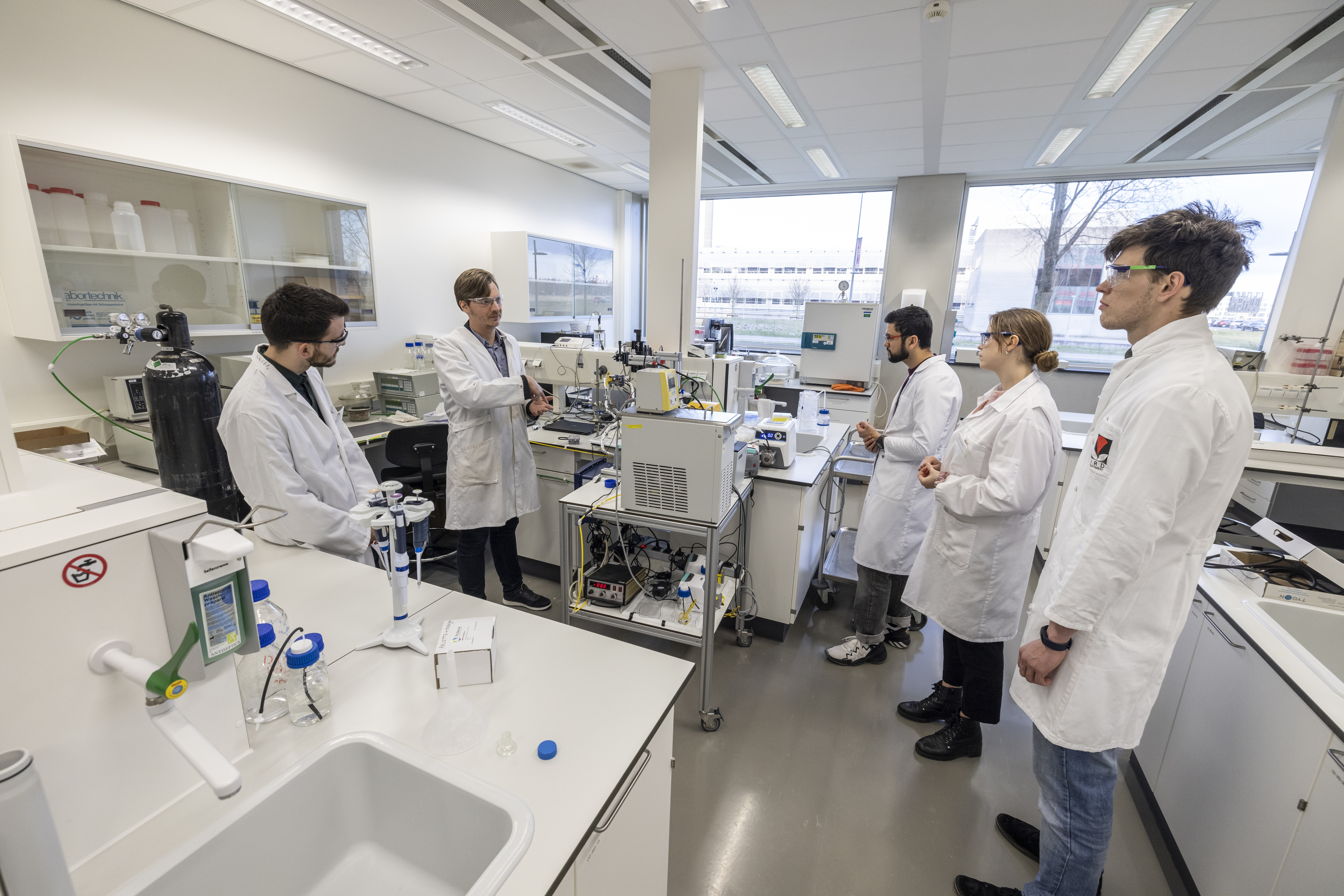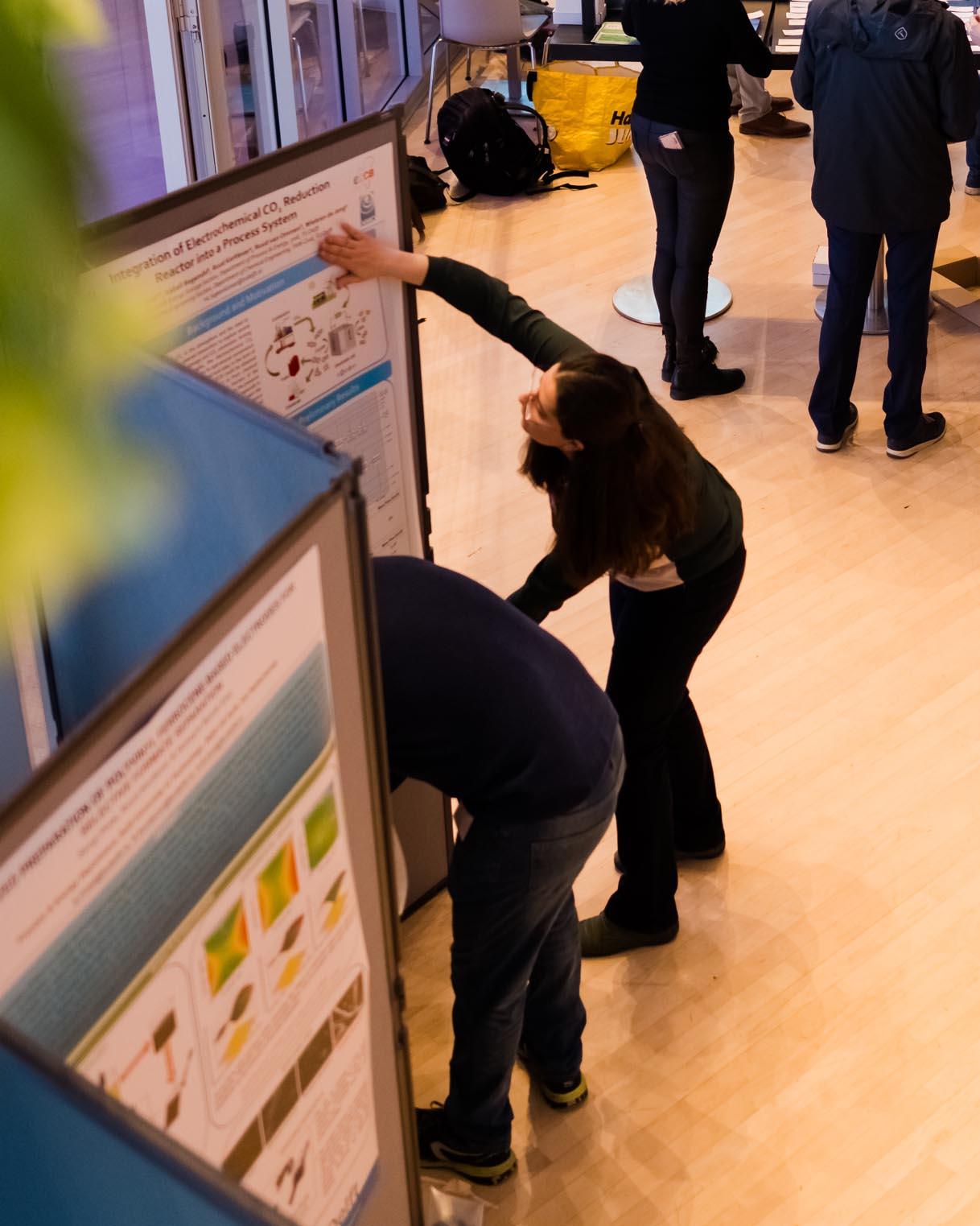e-Refinery Symposium
The e-Refinery Symposium took place on March 14 and 15. The symposium was organized to discuss our common interests in scalable electrochemical technologies, with a centred discussion on the interaction between the e-Refinery infrastructures and the needs of the industry.
From CO2 to Plastics and Laptops
Next to the generating power and heat, fossil fuels (hydrocarbons) also serve as feedstocks in all kinds of industrial processes, ultimately providing society with plastics, laptops, televisions – tangible things that can’t be made with green electricity alone. CO2 conversion by means of electrocatalysis is where renewable energy meets renewable feedstocks meets CO2 emission reduction.
‘Our world is based on carbon,’ says Tom Burdyny. ‘And the only way to replace carbon renewably is by converting captured CO2.’ One way to do that is the so-called reverse water-gas-shift reaction, in which CO2 and hydrogen are converted into carbon monoxide and water. You can then use carbon monoxide and hydrogen to create a large variety of hydrocarbons and compounds containing oxygen. But this is not as good a solution as industry would want. Electrocatalytic conversion of CO2 is a promising alternative in that it allows the direct production of multi-carbon compounds such as ethylene.
Password for both recordings: e-Refinery
Poster sessions
"A great social event that connects scientists and industry working on different electrochemical aspects. I am glad I had the opportunity to share our work with this enthusiastic audience." Davide Ripepi
"The poster sessions during the e-refinery symposium were really interesting. There were people from different backgrounds, working on different aspects of sustainability, such as chemical synthesis, process modelling, techno-economic analysis, scale-up, etc. I believe the symposium provided a great platform for inter-disciplinary interaction and sharing of knowledge that is necessary for the transition towards a sustainable future." Asvin Sajeev Kumar
